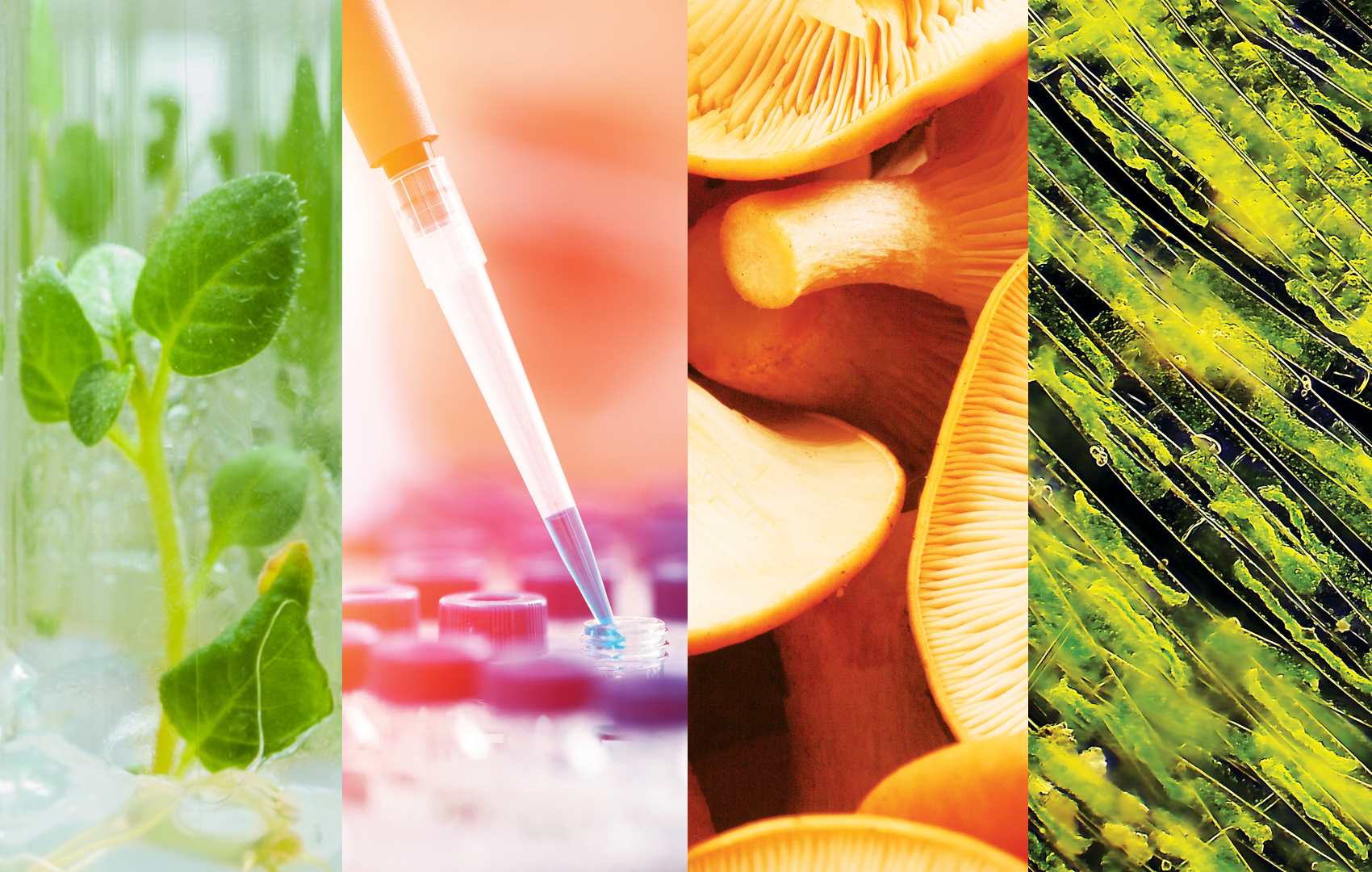The global food market is valued at $9.43 trillion and is responsible for approximately 34% of global greenhouse gas production. New developments and products have the potential to disrupt current food systems while also decreasing their existing energy and carbon footprint.
The goal of this conference is to engage with industry leaders and scientists at the cutting edge of recent agricultural and food science advances making a global impact on climate change, resource management, nutrition, food security, and energy demand. Issues discussed will include (i) Challenges with the existing food supply chain; (ii) Production, scaling, and adoption of new foods and food solutions; and (iii) Predictable environmental, social, economics, and health impacts, the good and the bad.
Join us for this free full-day conference, convening academics, industry experts, and people seeking investment opportunities.
Agenda
Topic 1: The challenge of existing food systems
The World Bank projects that the world population will increase to 9.7 billion (from the current 7.95 billion) by 2050. Continuing the current food production practice means a vast destruction of wilderness and other natural resources that will severely stress the world’s carrying capacity. It also poses a tremendous burden on the health and well-being of the farming community. The panelists will examine the pros and cons of the existing food systems and discuss the challenges of feeding an increasing population using existing food production practices. They will also address alternative food supply concepts and their potential effects on the world’s carrying capacity.
Topic 2: Production, scaling, adoption of new foods and food solutions
The creation of new foods and food solutions, ranging from plant-based protein to cultured meat and the development of advanced food production technology such as urban vertical farming, have the potential of changing the landscape of food production and supply, not to mention the entrepreneurial opportunity for new food start-ups. The issues addressed in the panel discussion include the challenges of economically and sustainably scaling the new foods from concept to large-scale production, advanced food production technologies and resource utilization as well as the potential obstacle for large-scale adoption by the general public to these new food sources and production technologies.
Topic 3: Predictable environmental, social, economics, and health impacts, the good and the bad
Recent advancements in agricultural and food science have the potential to create a profoundly positive global impact. Nonetheless, it is crucial to recognize that there may also be potential drawbacks, as is often the case with the adoption of any new technology. The pressing need for a more productive, nutritious, sustainable, and safe food system to meet the demands of our ever-growing population is indisputable. However, we must remain mindful of the social and environmental costs associated with implementing new advancements in areas such as genetic modification, artificially intelligent farming, and novel fertilizers. The objective of this panel is to center our attention on striking a balance and implementing effective regulations for these emerging breakthroughs, ensuring that the food systems we shape in the future are characterized by equity, good health, and sustainability.
VC session
In 2021, the total amount of capital raised by VC firms in food tech was close to $90 billion. In subsequent years, the amount of capital raised decreased, but VC firms continue to play an integral role in the startup ecosystem, particularly for high-growth, high-risk companies that may not be well-suited for traditional forms of financing. Hear from leading VC executives as they delve into their decision-making processes, the criteria they use to evaluate potential investments, and their perspectives on emerging opportunities in areas like cultivated meat and advanced protein feeds. Gain insights into the matrices used for investment decisions, how they see their responsibility as they make critical investments that may impact the future of food, and discover what changes, if any, these industry experts foresee in their investment approach.
Success stories
This riveting session will showcase the luminaries of the food-tech frontier. These trailblazing companies are sculpting the future of food through pioneering biotechnology. With a resolute commitment to sustainability, health, affordability, and climate-resilience, they are not just ideating, but actualizing transformative solutions. These firms have transcended traditional boundaries, securing significant funding and operationalizing their innovations.
Reception
Networking session where you can mingle with fellow attendees and speakers. Enjoy a curated selection of reception favorites alongside innovative food and drink samples from cutting-edge companies. It's the perfect setting to spark meaningful conversations and savor the future of food.
Speakers
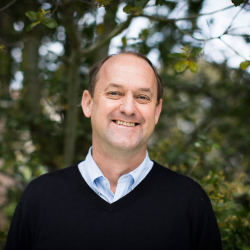
Dean
Rausser College of Natural Resources, UC Berkeley
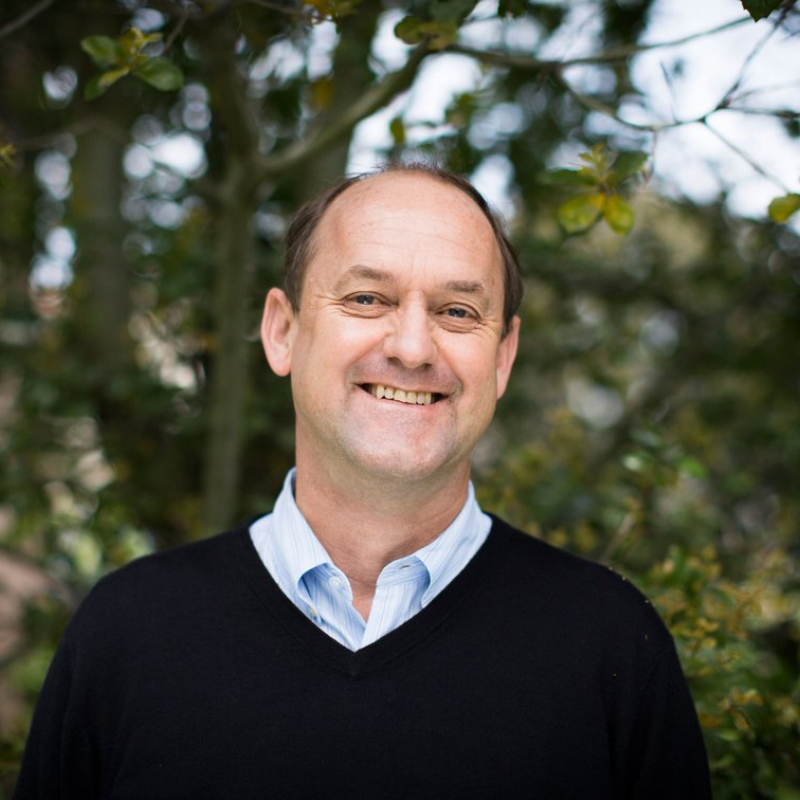
David Ackerly
Dean
Rausser College of Natural Resources, UC Berkeley
David Ackerly is the Dean of the Rausser College of Natural Resources and a professor in integrative biology, and has been on the faculty at UC Berkeley since 2005. He started his career as a volunteer on the Biological Dynamics of Forest Fragments Project in the Central Amazon, and then did his PhD research on the ecophysiology of tropical pioneer trees, working in Mexico. As a postdoc, he combined molecular phylogenetics with comparative studies of canopy architecture in maples (Acer), working in Japan and the northeastern US. As a faculty member, David's lab has tackled a variety of topics in plant ecology and evolution, including trait-based studies of plant strategies, integration of phylogenetics and community ecology, and comparative studies of trait evolution. In the last few years he has shifted his focus to the study of climate change impacts on biodiversity, focusing on the native flora of California, and implications for future challenges in conservation and land management. David co-directs the Terrestrial Biodiversity and Climate Change Collaborative (tbc3.org), a partnership with the Dwight Center for Conservation Science at Pepperwood Preserve, focused on climate change and resource management in the San Francisco Bay Area.
David is the PI and Director of an NSF NRT program: Environment and Society: Data Sciences for the 21st Century (DS421, 2015-2020). The program brings together Master’s and PhD students from a range of departments on the UC Berkeley campus to address interdisciplinary challenges related to global change. He also helps lead the Berkeley Initiative in Global Change Biology, which promotes integrative work addressing biotic impacts of global change.
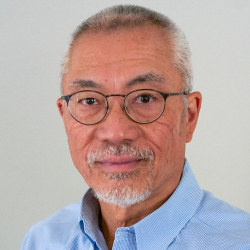
Advisor to the Dean and Executive-In-Residence
Rausser College of Natural Resources, UC Berkeley
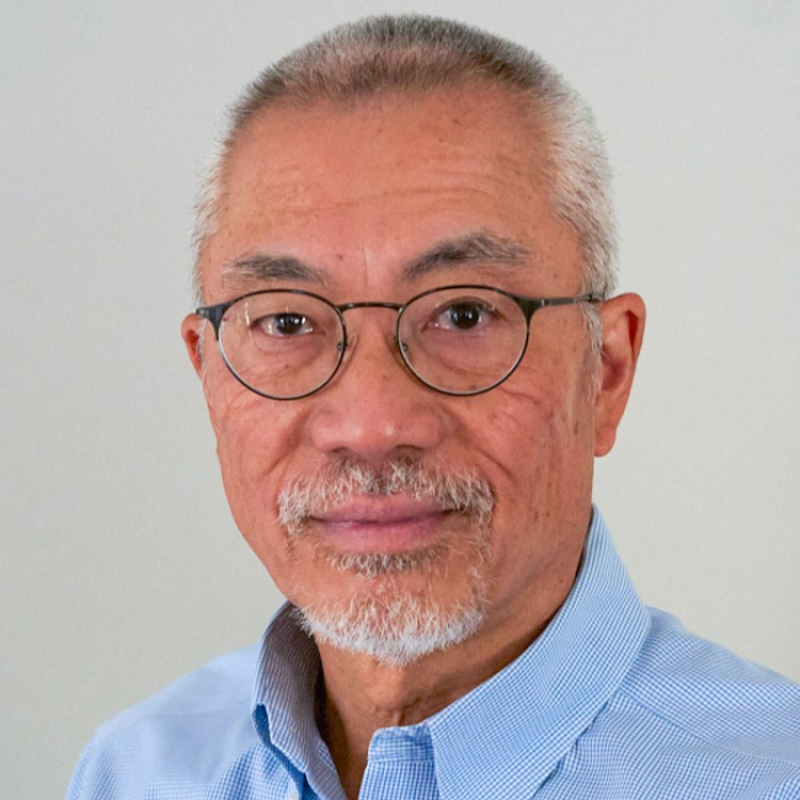
Mike Cheng
Advisor to the Dean and Executive-In-Residence
Rausser College of Natural Resources, UC Berkeley
Mike Cheng is the Advisor to the Dean and Executive-In-Residence in the Rausser College of Natural Resources at UC Berkeley. He transitioned to this current role after his nine-year term as a RCNR Advisory Board member with the aim of exploring opportunities to enhance collaborations between Rausser College of Natural Resources (RCNR) and the industry. Mike is also a faculty member in the Master of Molecular Science and Software Engineering (MSSE) Program from the College of Chemistry at UC Berkeley and an advisory board member of the Beahrs Environmental Leadership Program.
Mike had a 30-year career as an executive in the technology industry before pursuing his current interest in academia. He has served as the MBA Director at Golden Gate University where he led the redesign and launch of their current MBA and EMBA programs. He is an adjunct professor of management in the Ageno School of Business and has served on the School’s Advisory Board.
During his time in the technology industry, Mike served as the Corporate Vice President and President of the Eimac Division of Communications & Power Industry Inc. (CPI), a successor company of Varian Associates in Palo Alto, CA. Prior to that he held management positions in Marketing and Operations at both CPI and Varian Associates.
Mike is a graduate of the Management of Technology Companies program from the American Electronics Association/Stanford Executive Institute. He holds an MBA in General Management from Golden Gate University and received a BS in Chemical Engineering from the University of California, Berkeley.
Mike and his wife, Ruth, also an alumna of UC Berkeley, are active supporters of numerous academic units on the Berkeley campus. Together, they have two grown daughters and four grandchildren.
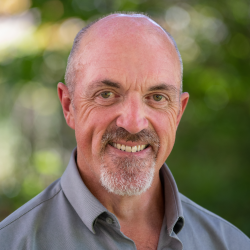
Director
Energy Biosciences Institute
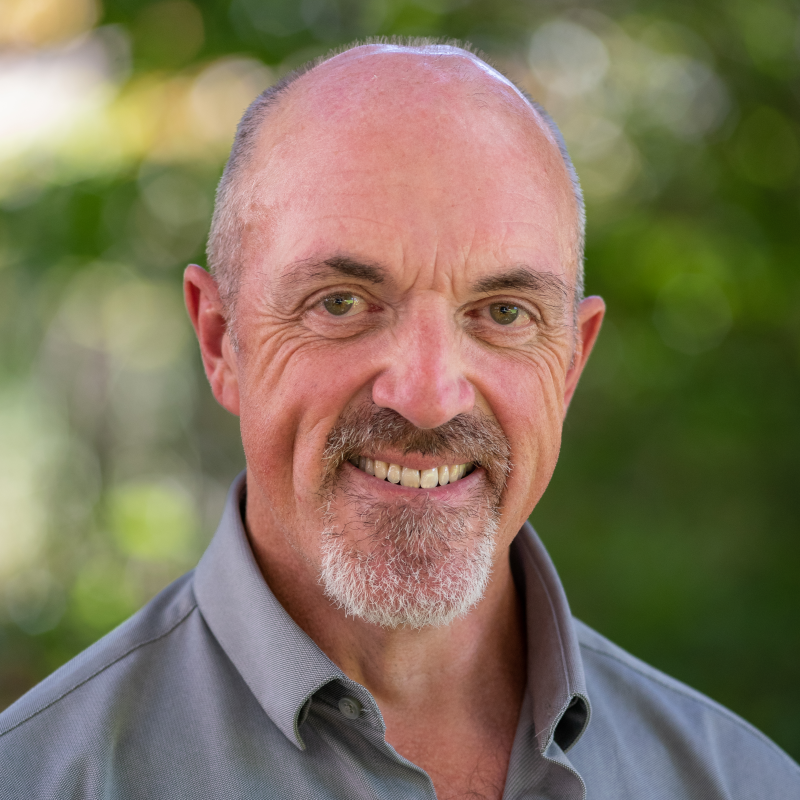
John Coates
Director
Energy Biosciences Institute
Professor, Microbiology
University of California, Berkeley
John D. Coates is a Professor of Microbiology, and Distinguished Director of the Energy & Biosciences Institis a Professor of Microbiology, and Distinguished Director of the Energy & Biosciences Institute (EBI) at University of California, Berkeley. In addition, he is a Senior Scientist in the Environmental Genomics and System Biology Division at the Lawrence Berkeley National Laboratories and is the co-founder of four startup companies. Coates’ research seeks to balance society's need to provide environmental protection while maintaining stable economic growth. His research focuses on the underlying microbiology of disparate biogeochemical redox cycles and their application including those of carbon, phosphorous, iron, humic substances, chlorine, iodine, uranium, and sulfur. His research leverages both traditional and next generation technologies with an emphasis on interdisciplinary approaches and provides insight into the mechanistic underpinnings of many unique metabolic processes. His research has been globally employed to environmental clean-up strategies for diverse contaminants. Coates earned his BSc in Biotechnology from Dublin City University, Ireland and his PhD from National University of Ireland, Galway. He has received several accolades for research and mentorship. He is a “Fellow of the American Academy of Microbiology” and a recipient of a “Special Alumnus Recognition Award” from the National University of Ireland Galway. Coates’ current research focuses on several aspects of microbial phosphorous redox cycling, carbon sequestration, and synthetic biology with a goal of enhancing the burgeoning bioeconomy in an effort to find scalable alternatives to unsustainable practices and climate change.
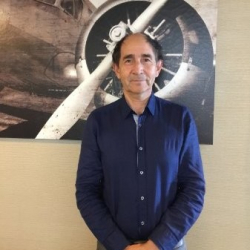
Director, Alt: Meat Lab
Sutardja Center for Entrepreneurship and Technology, UC Berkeley
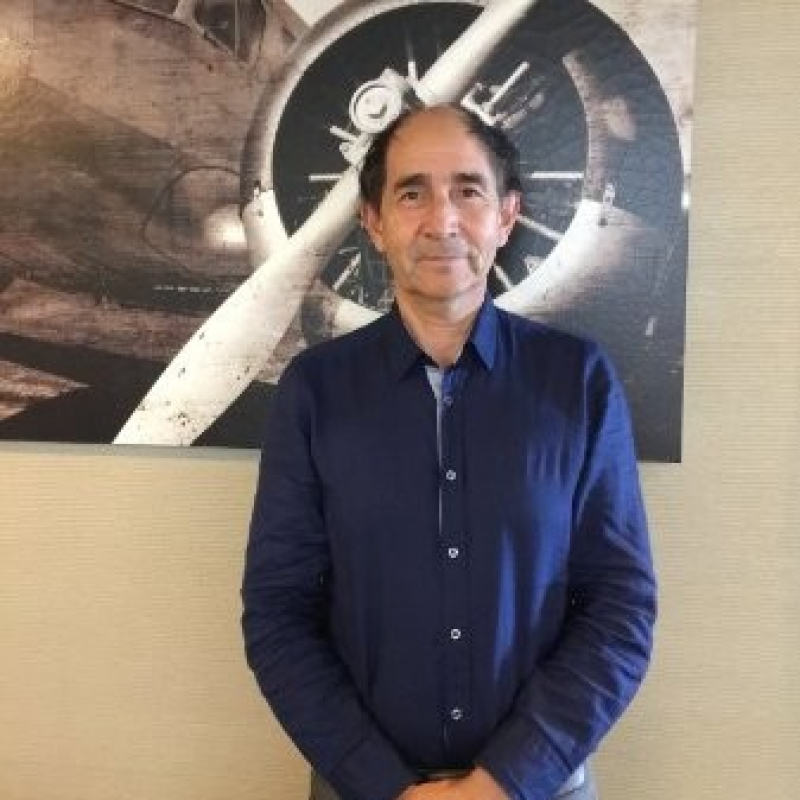
Ricardo San Martin
Director, Alt: Meat Lab
Sutardja Center for Entrepreneurship and Technology, UC Berkeley
Ricardo San Martin PhD is the director and co-founder of the Alt: Meat Lab at UC Berkeley’s Sutardja Center for Entrepreneurship and Technology. He is an inventor and entrepreneur in chemical and biological sciences, as well as a professor of entrepreneurship and innovation. He is the founding director of the Master of Design program at Universidad Catolica de Chile, and has the entrepreneurial skill to set up new companies based on fundamental research (such as the development of vaccine adjuvants for COVID vaccines).
San Martin is also the innovation director of Desert King International. He received his PhD in biotechnology from Imperial College London, and his master of science in chemical engineering from UC Berkeley.
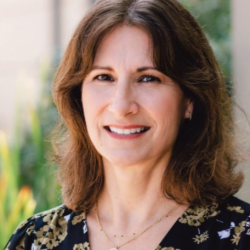
Managing Director
Bakar BioEnginuity Hub
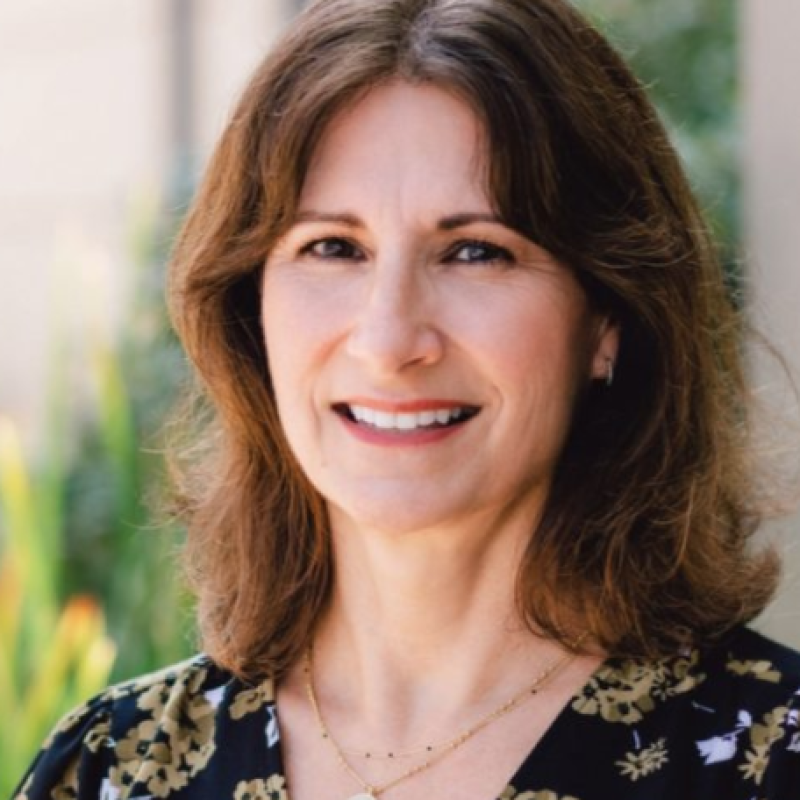
Susan Jenkins
Managing Director
Bakar BioEnginuity Hub
Dr. Susan Jenkins is Managing Director for the Bakar BioEnginuity Hub and the Bakar Fellows Program, and as a member of the directorate she is involved in strategic planning and management. In addition, she plays a key role integrating policy, outreach, and education activities for these programs, while serving as a liaison to campus, state, federal and international entities. Previously, Dr. Jenkins was the Managing Director of the Energy Biosciences Institute, at the time the world’s largest public-private partnership focused on sustainable approaches for bioenergy. She has extensive expertise in developing innovative, multi-disciplinary research institutes to ensure that basic science leads to transformative solutions. On an ongoing basis, Dr. Jenkins lectures and advise on academic-industry partnerships, biotechnology, genome editing, and bioenergy, and has served on advisory committees for foundations, institutes, and companies in the US and internationally to help develop multidisciplinary initiatives to address issues relating to the bioeconomy, bioenergy, sustainability, and climate change. Dr. Jenkins holds a B.S. degree in Genetics from the University of California, Davis and a PhD in Plant Molecular Biology from University of California, Berkeley, and a certificate in Executive Management from Haas School of Business, where she also served as an instructor for the NSF I-Corps Regional program.

Postdoctoral Fellow
Keasling Lab, UC Berkeley

Sarah Klass
Postdoctoral Fellow
Keasling Lab, UC Berkeley
Lecturer
Alt: Meat Lab, Sutardja Center for Entrepreneurship and Technology, UC Berkeley
Sarah Klass, Ph.D., is a postdoctoral fellow in the Keasling Lab at UC Berkeley and the Joint Bioenergy Institute. Additionally, she serves as a lecturer for the Alt: Meat Challenge Course through the Sutardja Center for Entrepreneurship & Technology at UC Berkeley. With a chemistry and chemical biology background, her focus has been on chemically and genetically modifying natural protein structures for advanced material and biological functions. During her Ph.D. in the Francis lab at UC Berkeley, Sarah studied the impact of sequence modification on intrinsically disordered proteins’ self-assembling properties to develop a new class of bioderived and biodegradable protein-based materials with unique functions. In the Keasling Lab, Sarah works on engineering polyketide synthetases (PKSs) in bacterial hosts to bio-manufacture small molecule monomers that can be polymerized into recyclable 3D plastics. Additionally, she has worked to genetically engineer Aspergillus oryzae, the filamentous fungi associated with the production of sake and miso, to produce novel compounds and enzymes with applications in food and waste upcycling.
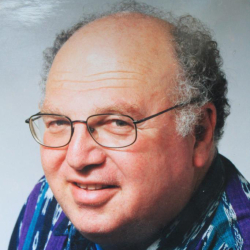
Professor
Robinson Chair
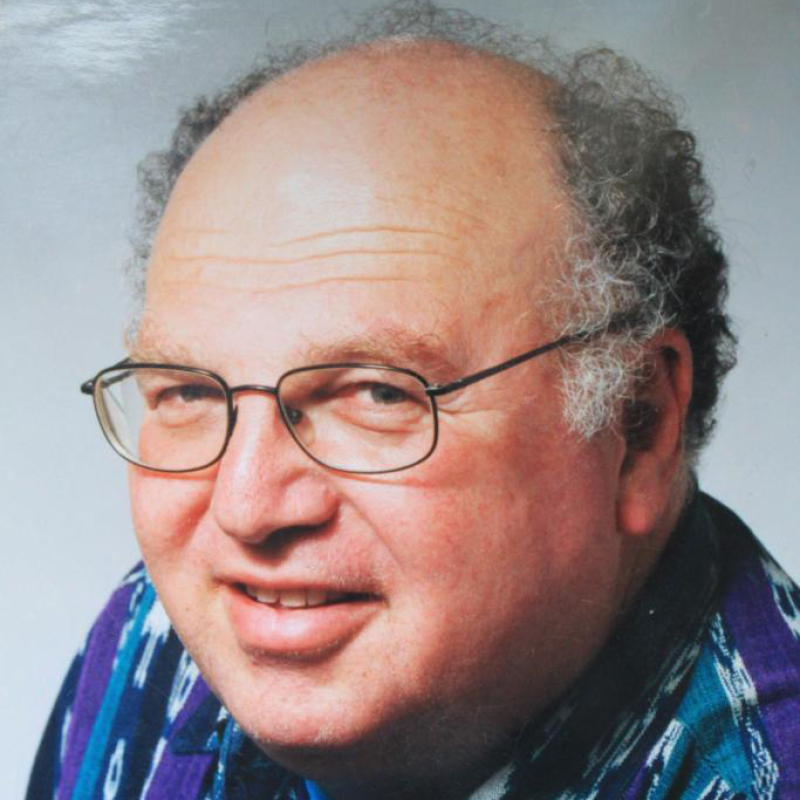
David Zilberman
Professor
Robinson Chair
Co-Director
Beahrs Environmental Leadership Program
Dr. David Zilberman is the co-founder of the Beahrs ELP and holds the Robinson Chair in the Agricultural and Resource Economics Department at UC Berkeley, where he has been since 1979. He was awarded the Wolf Prize in Agriculture in 2019. In his time at UC Berkeley, he served as Department Chair of Agricultural and Resource Economics from 1994 to 1999, as Director of the Giannini Foundation of Agricultural Economics and the Center for Sustainable Resource Development, respectively; the Faculty Director of the Beahrs Environmental Leadership Program; and as a consultant to the World Bank, the USDA, the Food and Agriculture Organization, the Environmental Protection Agency, Consultative Group on International Agricultural Research, and the California Department of Food and Agriculture.
Professor Zilberman’s areas of expertise include agricultural and environmental policy; biotechnology; bioenergy and climate change; and the economics of innovation, risk, marketing, water, and pest control. He has edited 16 books and coauthored 270 papers in refereed journals ranging from Science to the Quarterly Journal of Economics. During the 1980s, his work served as the basis for several projects on the adoption of modern irrigation technology and computers in California agriculture. These studies demonstrated that farmers adopt new technologies when it makes economic sense and that extreme events, such as droughts or high prices, can trigger changes in farming practices. During the early 1990s, his research on pesticide economics and policy made the case against policies that called to ban pesticides, and advocated instead for smart policies that take advantage of the vast economic benefits that pesticides generate while using incentives to protect against side effects.
Dr. Zilberman is one of the most cited scholars in agricultural, environmental, and resource economics with 28,980 citations on Google Scholar as of October 2019. He is a current fellow of the American Agricultural Economics Association (AAEA), the Association of Environmental and Resource Economists (AERA), and the Agricultural & Applied Economics Association.
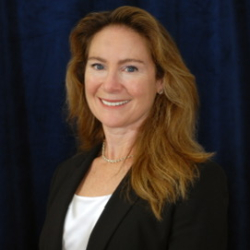
Undersecretary
California Department of Food and Agriculture
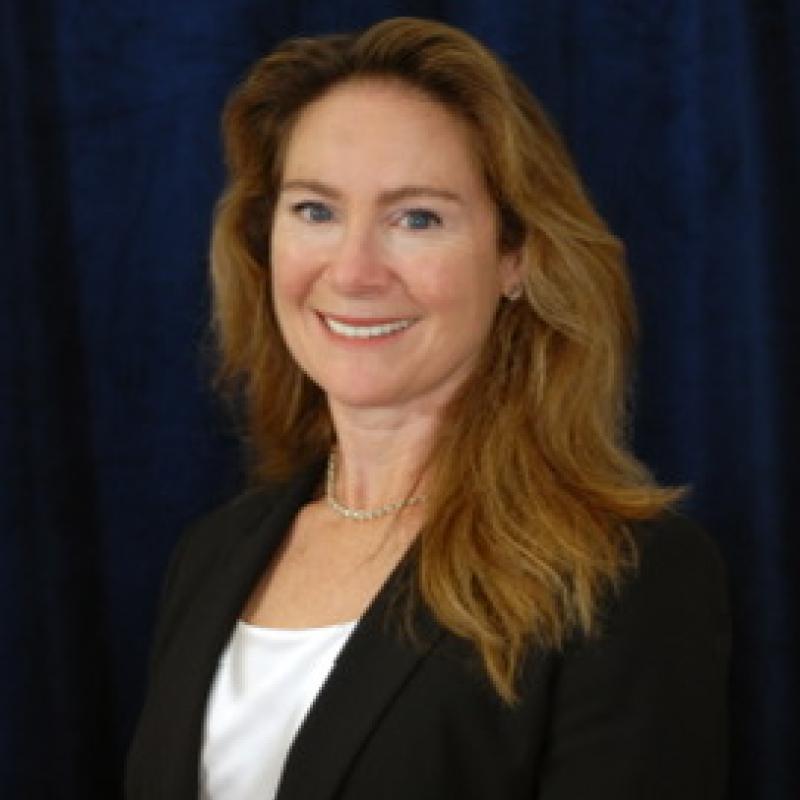
Christine Birdsong
Undersecretary
California Department of Food and Agriculture
Christine Birdsong was appointed by Governor Newsom as Undersecretary of the California Department of Food and Agriculture. Previously, Birdsong was Senior Vice President, General Counsel and Director of People and Culture for the Sun Valley Rice Company. She has also served as General Counsel for the National Cotton Council of America, Counsel for the Committee on Agriculture for the United States House of Representatives and Federal Government Affairs Leader for CropLife America. Birdsong earned a Juris Doctor degree from the UC College of the Law, San Francisco, and is a UC Berkeley alumni.
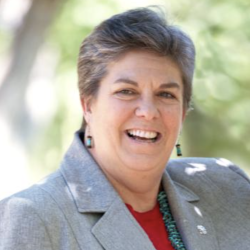
Vice President
UC Division of Agriculture and Natural Resources
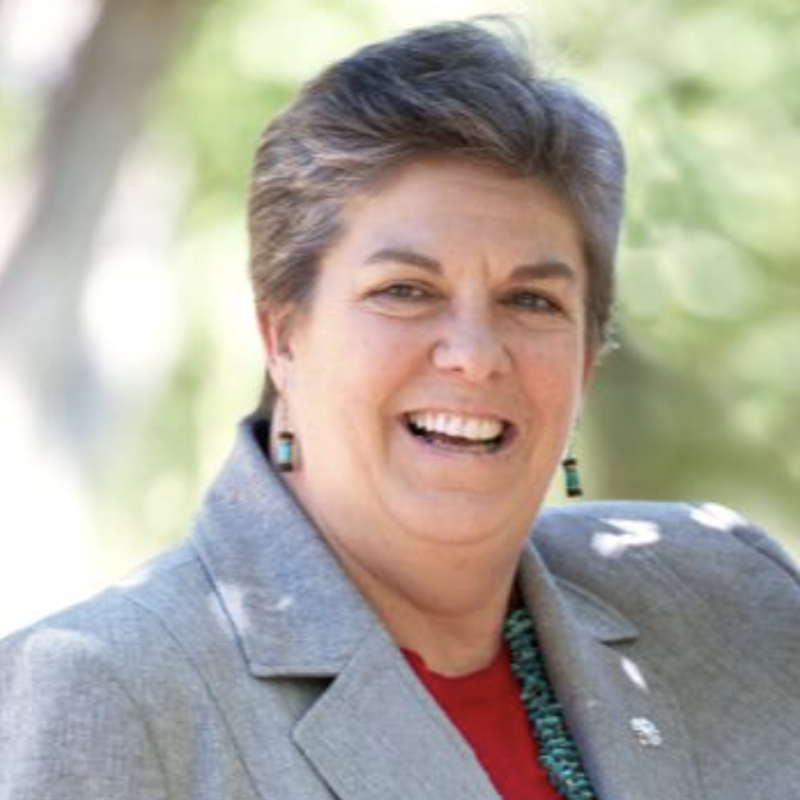
Glenda Humiston
Vice President
UC Division of Agriculture and Natural Resources
Glenda Humiston was appointed University of California vice president for agriculture and natural resources Aug. 3, 2015.
Humiston was born in California and raised on a cattle ranch in Colorado, where she was a member of 4-H. She came to UC ANR with more than 25 years of experience working on public policy development and program implementation supporting sustainability.
She served as a Peace Corps volunteer in Tunisia, as executive director of a nonprofit organization advocating farmland preservation and value-added agriculture development, and several years as a consultant on environmental and agricultural issues throughout the West.
She served President Clinton as deputy undersecretary for natural resources and environment at USDA from 1998 to 2001. She managed the Sustainable Development Institute at the 2002 World Summit for Sustainable Development in South Africa and the 2006 World Water Forum in Mexico City. In 2009, Humiston was appointed by President Obama to serve as the California State Director at the U.S. Department of Agriculture (USDA), Rural Development.
Humiston produced a widely acclaimed guidebook on “Access to Capital” and has led efforts to bring rural issues to the forefront of the state’s Economic Summit and policymakers throughout California.
Humiston earned her Ph.D. from UC Berkeley in Environmental Science, Policy and Management in 2009 with research focused on U.S. Farm Bill policy. She has a master’s degree in international agricultural development from UC Davis and a bachelor’s degree in animal science from Colorado State University.
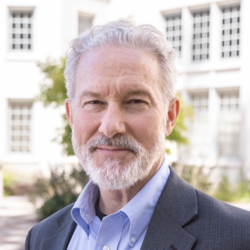
Associate Vice Chancellor for Innovation and Entrepreneurship
Haas School of Business
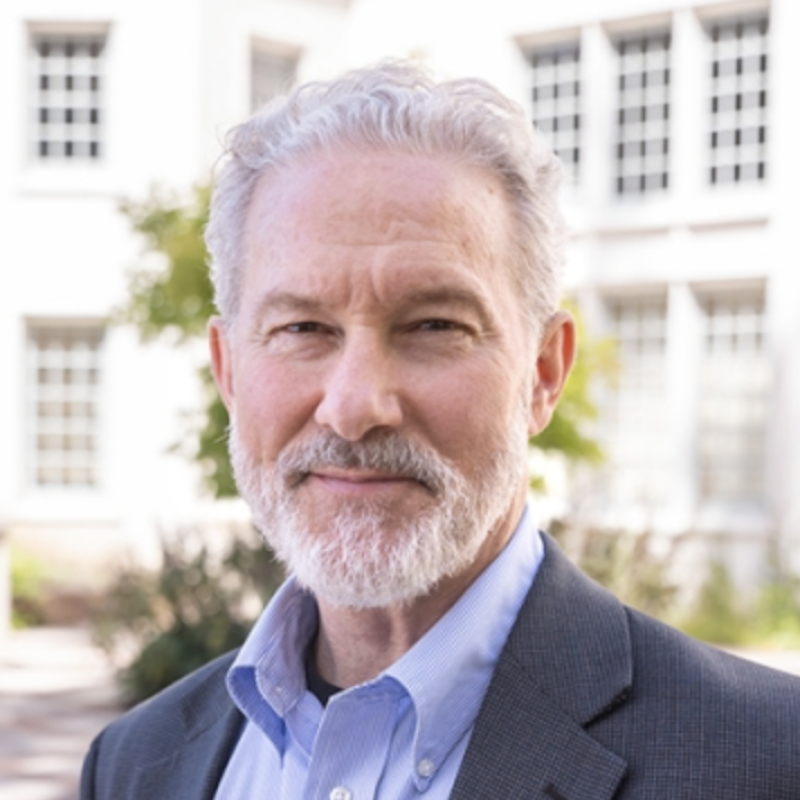
Richard Lyons
Associate Vice Chancellor for Innovation and Entrepreneurship
Haas School of Business
Professor & Former Dean
Haas School of Business
Richard Lyons is Associate Vice Chancellor and Chief Innovation & Entrepreneurship Officer, and former Dean of Berkeley Haas. He worked on exchange rates, but from a "micro" perspective rather than the traditional "macro" perspective. The micro approach uses data on transactions in currency markets to address how this market absorbs new information. It is both "information theoretic" and quite applied in that it addresses the phenomenon (price determination) at its source. His most recent work in this area is on stablecoins, which are cryptocurrencies pegged to other currencies like the US dollar or hard assets like gold. He is also writing more now on innovation and how cultures of innovation can be developed in companies and in geographic regions.

Executive Director
Innovative Genomics Institute

Brad Ringeisen
Executive Director
Innovative Genomics Institute
Brad Ringeisen is the Executive Director of the Innovative Genomics Institute (IGI), founded by Jennifer Doudna in 2014 on the University of California, Berkeley campus.
The mission of the IGI is to bridge revolutionary gene editing tool development to affordable and accessible solutions in human health and climate. Brad’s primary role is to guide IGI’s scientific and development strategy, but his duties also include promoting entrepreneurship, working with biotech investors and companies to ensure commercial translation of our technologies, donor outreach and development, scientific project development and team building, communication with campus leadership, personnel management and mentoring, program management, and reporting and engagement with both our Governance and Scientific Advisory Boards.
Brad is a physical chemist with a Ph.D. from the University of Wisconsin-Madison, a pioneer in the field of live cell printing, and an experienced administrator of scientific research and product development. Before joining the IGI, Brad was Director of the Biological Technologies Office at DARPA, where he managed a division working at the cutting edges of biology, physical sciences and engineering. Programs in Brad’s office included research in genome editing, epigenetics, neurotechnology, food security and biomanufacturing, as well as diagnostics and therapeutics development. Prior to DARPA, Brad ran his own research group at the U.S. Naval Research Laboratory as the head of the Bioenergy and Biofabrication Section.

Chancellor's Professor and Chair, Plant and Microbial Biology
UC Berkeley

Sheng Luan
Chancellor's Professor and Chair, Plant and Microbial Biology
UC Berkeley
Sheng Luan is Chancellor's Professor and Chair in the Department of Plant and Microbial Biology at the University of California, Berkeley. Luan Laboratory studies how plants perceive and respond to extracellular signals through modifying their developmental and physiological programs. Studies in Luan Lab have identified a new molecular network for calcium signal transduction in plants. Downstream of these early signaling events, plants respond and adapt to environmental changes by regulating the biochemical processes including those at the plasma membrane, vacuolar membrane, and in the chloroplasts.

Adjunct Professor, Chemical and Biomolecular Engineering
UC Berkeley

Brian Maiorella
Adjunct Professor, Chemical and Biomolecular Engineering
UC Berkeley
Brian Maiorella is an industrial fellow on the board of the UC Berkeley Alternative Meat Lab, and advises companies in areas of biotechnology, biopharmaceutical development, and new foods innovation. He is an adjunct professor in the University of California at Berkeley College of Chemistry, teaching undergraduate and graduate courses in biochemical process design and pharmaceutical product development strategy. Dr. Maiorella has 20 years of experience in the biopharmaceutical industry, with expertise in drug development portfolio management and optimization of the drug product development process. He retired in 2001 as vice president of process development at Chiron, where he had served on the corporate drug portfolio ranking team and on the management team overseeing all products in clinical development. He led the division responsible for fermentation, purification, formulation, analytical, and drug delivery process development for recombinant therapeutic products; including oversight of pilot GMP manufacturing to support preliminary clinical testing, and technology transfer to commercial manufacturing operations. Dr. Maiorella has applied his experience in bioprocess design to the analysis of challenges for cultivated meat production, and is inventor of a means for directed cellular self-assembly to achieve desired appearance and structure for a cultivated meat product. Dr. Maiorella is inventor of several patents in the areas of mammalian cell culture and biopharmaceutical manufacturing, holds degrees in chemical engineering and management from UC Berkeley and MIT, and is winner of the American Chemical Society William H. Peterson Award in biochemical engineering.
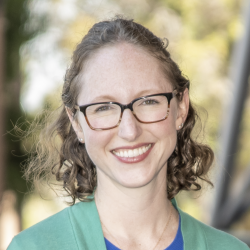
Vice President and Founder
Life-cycle, Economics, and Agronomy Division, Joint BioEnergy Institute
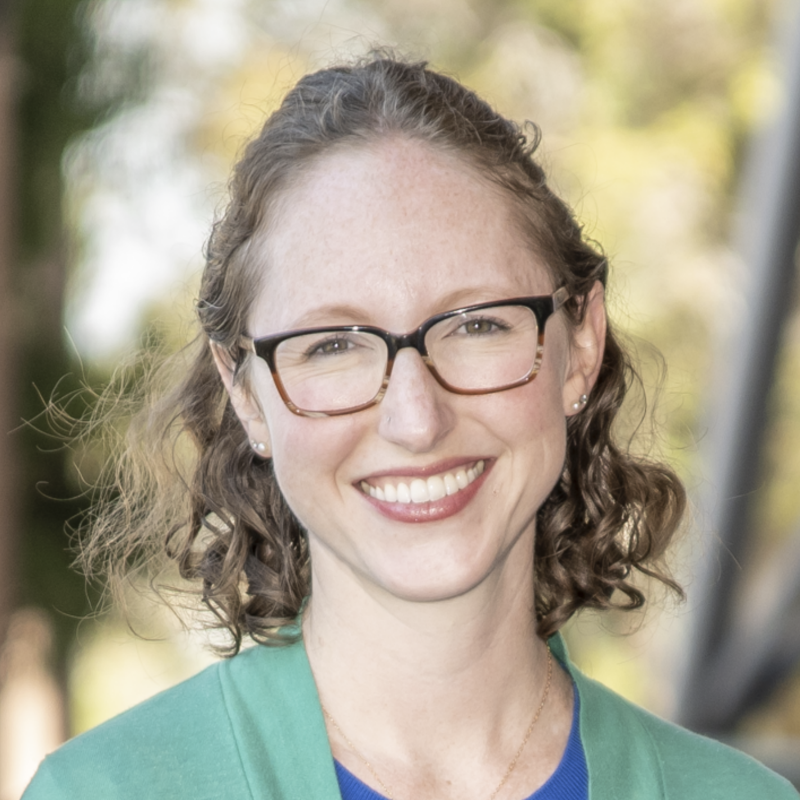
Corinne Scown
Vice President and Founder
Life-cycle, Economics, and Agronomy Division, Joint BioEnergy Institute
Corinne Scown is the Vice President and founder of the Life-cycle, Economics, and Agronomy Division (LEAD) at the Joint BioEnergy Institute (JBEI), Deputy Director for Research of the Energy Analysis and Environmental Impacts (EAEI) Division at Lawrence Berkeley National Lab, and Head of Sustainability at the Energy and Biosciences Institute (EBI). Scown’s expertise includes life-cycle assessment and technoeconomic analysis applied to biofuels and bioproducts. She has led projects funded by the U.S. Department of Energy, California Energy Commission, California Air Resources Board, and Energy Biosciences Institute. She frequently collaborates with companies ranging from small startups to large multinational corporations in the bioenergy and bioproducts domain and enjoys finding ways to translate her research outputs into meaningful tools and insights for industry and policy makers. Scown is also co-founder of Cyklos Materials, a recyclable biopolymers startup. She earned a B.S. in civil engineering with a double-major in engineering and public policy at Carnegie Mellon University, and she received her Ph.D. and M.S. in civil and environmental engineering at UC Berkeley.
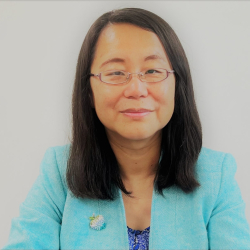
Research Leader and Supervisory Research Food Technologist
USDA
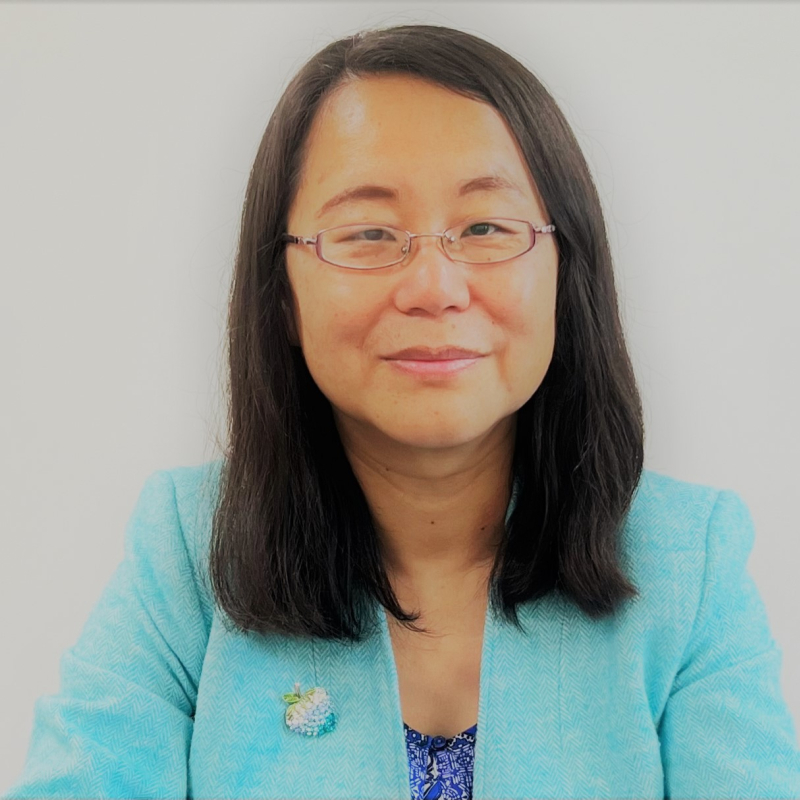
Yixiang Xu
Research Leader and Supervisory Research Food Technologist
USDA
Dr. Yixiang Xu is currently a Supervisory Research Food Technologist and Research Leader of the Healthy Processed Foods Research Unit of Agricultural Research Service (ARS) at the United States Department of Agriculture (USDA). Prior to joining USDA-ARS, Dr. Xu served as a tenured Full Professor of Food Science at Agriculture Research Station of Virginia State University. Her research interests include development of novel technologies for processing, utilization, and value addition to crops and waste products while addressing sustainability, safety, security and human health challenges. Dr. Xu has authored 100 publications, including 75 peer-reviewed high-impact research papers with 47 as first or corresponding author, and has co-authored three invited book chapters. Based on Google Scholar, Dr. Xu’s publications have been cited over 4,100 times by peers worldwide with an h-index of 31. Dr. Xu has secured more than $13.0 million in highly competitive extramural grants. Dr. Xu has mentored or co-advised 11 Ph.D. and M.S. students. Because of her numerous groundbreaking contributions, outstanding achievements, and significant research impact in the field of sustainable food processing and packaging, Dr. Xu has solidified her reputation as an internationally acclaimed scientist.
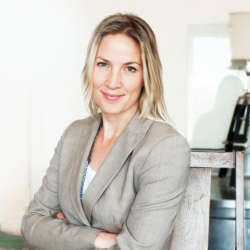
CEO & Co-Founder
Umaro Foods
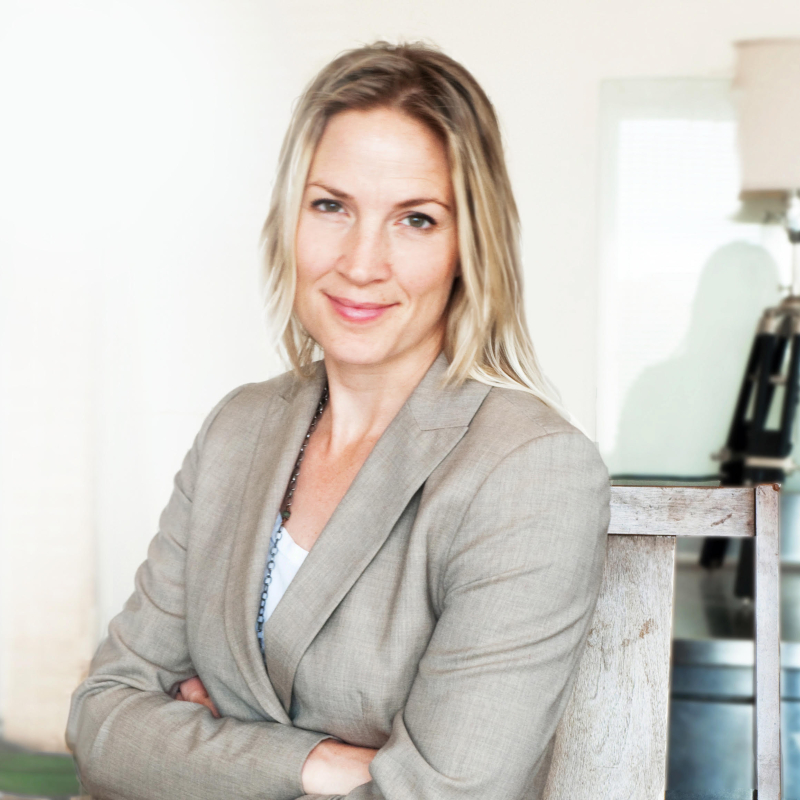
Beth Zotter
CEO & Co-Founder
Umaro Foods
Beth Zotter is the cofounder and CEO of Umaro Foods, a company unlocking the potential of ocean farmed seaweeds to make delicious and affordable plant-based protein. She is also the leader of an ambitious ocean farming project, TROFX, backed by ARPA-E and top 60 Milestone Finalist in the $100M Carbon Removal XPRIZE. Before Umaro Foods, Beth was a staff member of Activate, where she developed tools to help entrepreneurs develop economic models to assess the potential of their new technologies. Beth got her start in a seaweed biofuels startup, and has interdisciplinary science and policy degrees from Harvard and UC Berkeley.
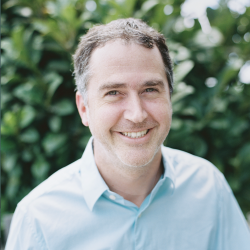
CTO and Co-Founder
Oobli
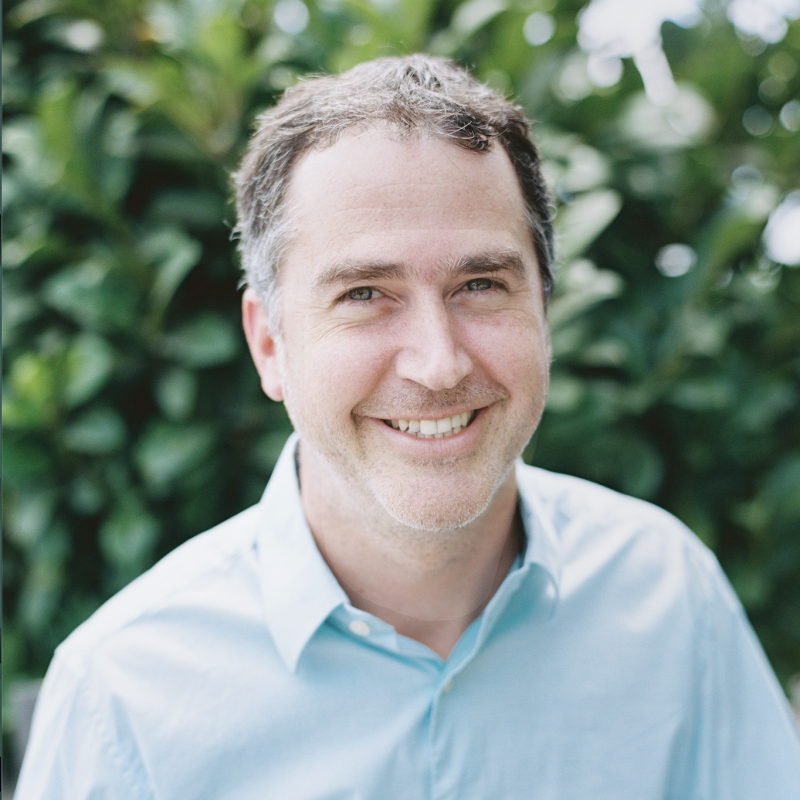
Jason Ryder
CTO and Co-Founder
Oobli
Adjunct Professor
UC Berkeley
Jason Ryder is a bioprocess engineer, entrepreneur, and educator with experience in process and product development, engineering design, scale up, and commercialization in the industrial biotech and food tech sectors. His professional work has ranged from small molecules to proteins with applications spanning sustainable chemicals, fuels,materials, and foods.
Jason is the Chief Technology Officer and Co-Founder of Oobli, a food technology company building a new category of food and beverages based on naturally sweet proteins. Prior to Oobli, Jason spent time in senior technical leadership roles at Amyris, Bolt Threads, and Hampton Creek / Eat JUST.
Jason earned a B.S. in Chemical Engineering from the University of Alabama and a Ph.D. in Chemical Engineering from the University of California at Berkeley. In 2018 he joined the UC Berkeley faculty in the Department of Chemical and Biomolecular Engineering, where he currently serves as Adjunct Professor and Executive Director of the Master of Bioprocess Engineering (MBPE) program.
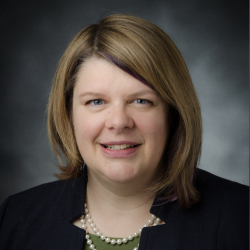
CEO and Co-Founder
Pow.bio
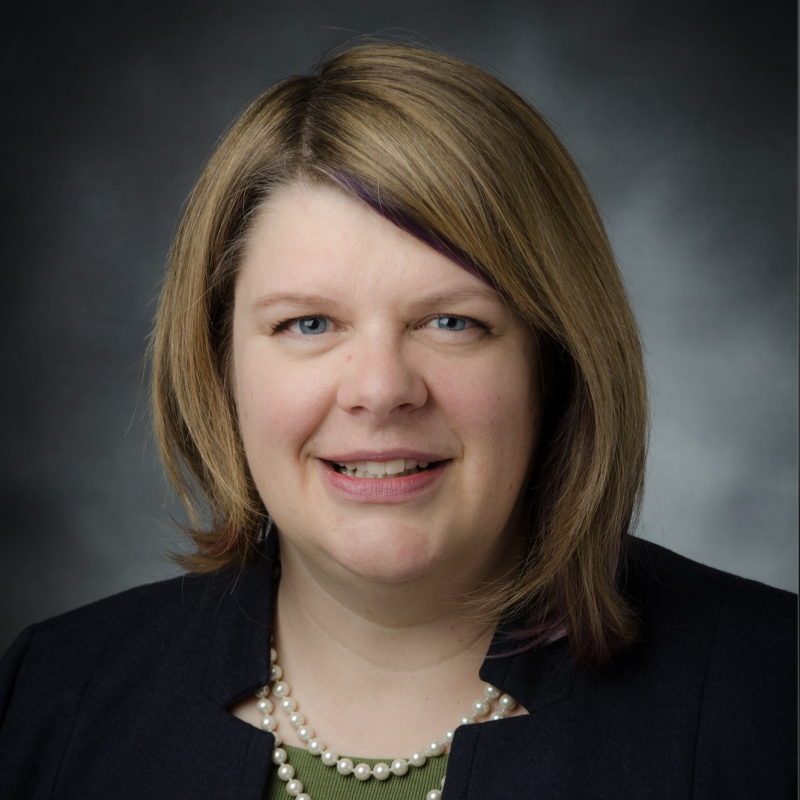
Shannon Hall
CEO and Co-Founder
Pow.bio
Shannon Hall is an experienced Life Sciences executive with over 25 years of experience building platforms, teams, and multi-million dollar businesses. She is now the CEO at Pow.bio, a Pilot as a Service company serving the next generation of food and agricultural solutions. Pow has established both customers and unique intellectual property and is scaling rapidly. Shannon and the Pow team are building the continuous fermentation infrastructure of the future.
Shannon served as Executive Vice President of Bio-Rad and President of the Life Sciences Group before co-creating Pow.bio. In addition to leading Pow.bio Shannon steers the field of biotech in her roles as Board Member at Mesa Laboratories, Inc. and advisor at Berkeley SkyDeck.
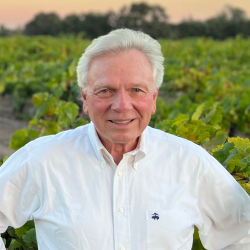
Co-Founder/President
Culinary Sciences
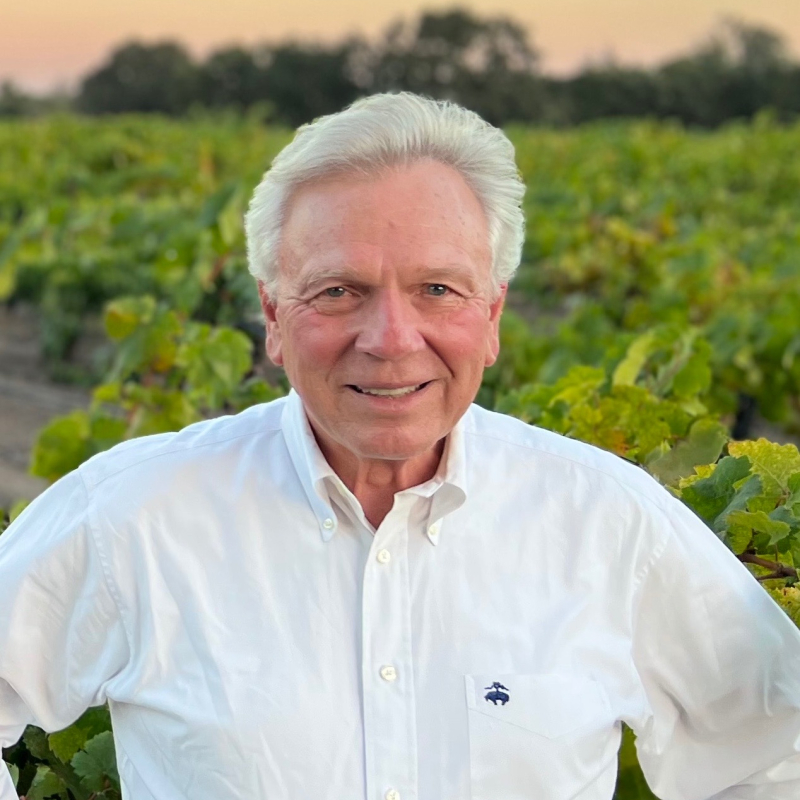
Mark Linder
Co-Founder/President
Culinary Sciences
Mark Linder is Co-Founder and President of Culinary Sciences, Inc. an early stage AgTech/FoodTech company that manufactures transformational, patented Extreme Vacuum technology equipment that can rapidly cool food for high-volume food and agriculture related businesses, and which offers innovative food treatment applications like rapid flavor infusion.
Mark currently serves as Agriculture Liaison for the Culinary Institute of America, a role created for him in 2003. Other current advisory leadership roles are with Rural Development Partners, Culinary One Investments, and Agrology, a leading Predictive Agricultural company and a Public Benefit Corporation.
Mark is the co-founder and was the first President of the Agriculture in the Classroom program, which he helped to establish first in California, then throughout the United States during his 23-year tenure with the California Farm Bureau. In 1988, he co-founded Project Food, Land & People (FLP), and in 1998, under Mark’s leadership as the first full-time CEO of FLP, he established its headquarters in the newly formed Presidio National Park.
Mark was instrumental in co-founding the award-winning America’s Heartland television show, which is aired weekly on RFD TV and public television stations across the United States. Now in its 17th season, America’s Heartland has aired more than 400,000 times on PBS channels representing 97% of all U.S. TV markets. America’s Heartland YouTube page averages more than 200,00 views per month and AH YouTube videos have been watched more than 40 million times.
Mark was a long-serving advisor to the California Institute of Food & Agricultural Research and served for many years on the Center for Land-Based Learning’s board of directors and the California State Fair’s Agricultural Advisory Board.
Mark and his wife, Mary, live in California’s Napa Valley.
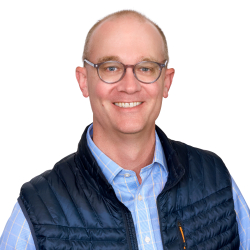
Managing Partner
Piva Capital

Mark Gudiksen
Managing Partner
Piva Capital
Profile in progress...
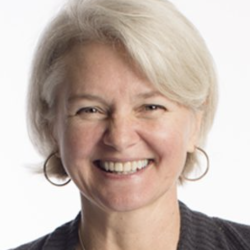
Professor
UC Berkeley School of Public Health

Kristine Madsen
Professor
UC Berkeley School of Public Health
Dr. Kristine Madsen is a Professor at UC Berkeley’s School of Public Health and the Faculty Director for the Berkeley Food Institute. She is a pediatrician and research scientist with expertise in the design and evaluation of interventions related to pediatric obesity, cardiovascular risk, and health disparities. She has partnered with schools, health departments, and cities to expand the reach of school and community programs that promote health. Her research team recently conducted the first study to examine the longer-term impacts of Berkeley’s soda tax on sugar-sweetened beverage consumption in low-income neighborhoods.
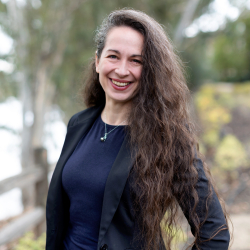
CEO and Founder
Orbillion Bio

Patricia Bubner
CEO and Founder
Orbillion Bio
Patricia Bubner, PhD is a scientist and engineer building a more ethical and sustainable future of food. She is Co-Founder and CEO of Orbillion Bio, which will be the first company to bring premium cultivated meats to market. Previously, she worked in biopharma scaling up the very bioprocesses used in cellular agriculture, and she co-founded an agriculture and food systems initiative working with farmers to expand food biodiversity. Combining her work experience from the biopharma, food and sustainable materials industry, Patricia is now building a world class team to take cultivated meat production to the next level. Patricia holds an MSc in Technical Chemistry and a PhD in Biotechnology from Graz University of Technology in Austria, and did her postdoctoral research at the Energy Biosciences Institute at UC Berkeley.
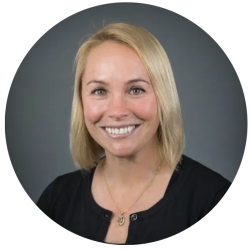
Associate Director
CITRIS and the Banatao Institute, UC Merced
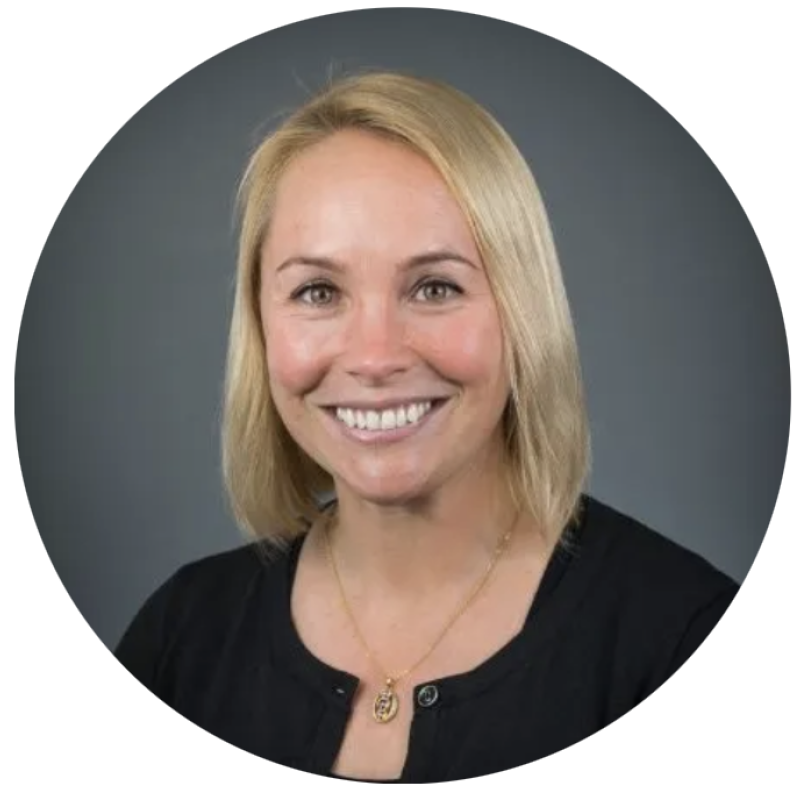
Erin Hestir
Associate Director
CITRIS and the Banatao Institute, UC Merced
Associate Professor
UC Merced
Erin Hestir is an associate professor in environmental systems at the University of California, Merced, where she also serves as associate director of CITRIS at UC Merced. Her research focuses on aquatic ecosystems under threat from competing pressures to meet societal needs for water and food security while sustaining biodiversity and other ecosystem services such as water quality. She has expertise in geospatial analytics, hyperspectral and satellite remote sensing, and sensor networks for inland and coastal waters and wetlands. Hestir also has expertise in the application of remote sensing for water resources and ecosystem management, and in facilitating the adoption of remote sensing for environmental reporting.
Erin Hestir is also an adjunct senior lecturer at the University of Southern Queensland in Australia. She is a member of the International Ocean Color Coordinating Group working group on coastal and inland water quality, and is the North American coordinator for the intergovernmental Group on Earth Observations (GEO) Freshwater Biodiversity Observation Network.
Hestir earned her bachelor’s degree from UC Berkeley, and her Ph.D. from UC Davis. She held a postdoctoral fellowship in Environmental Earth Observation at the Commonwealth Scientific and Industrial Research Organisation (CSIRO) in Australia, where she led a research program to improve systematic national monitoring of water quality and aquatic ecosystems using Earth observations. Prior to joining UC Merced, Hestir was an assistant professor and Chancellor’s Faculty Excellence Fellow at North Carolina State University.
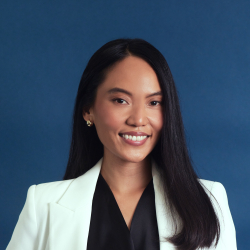
Principal
Creative Ventures
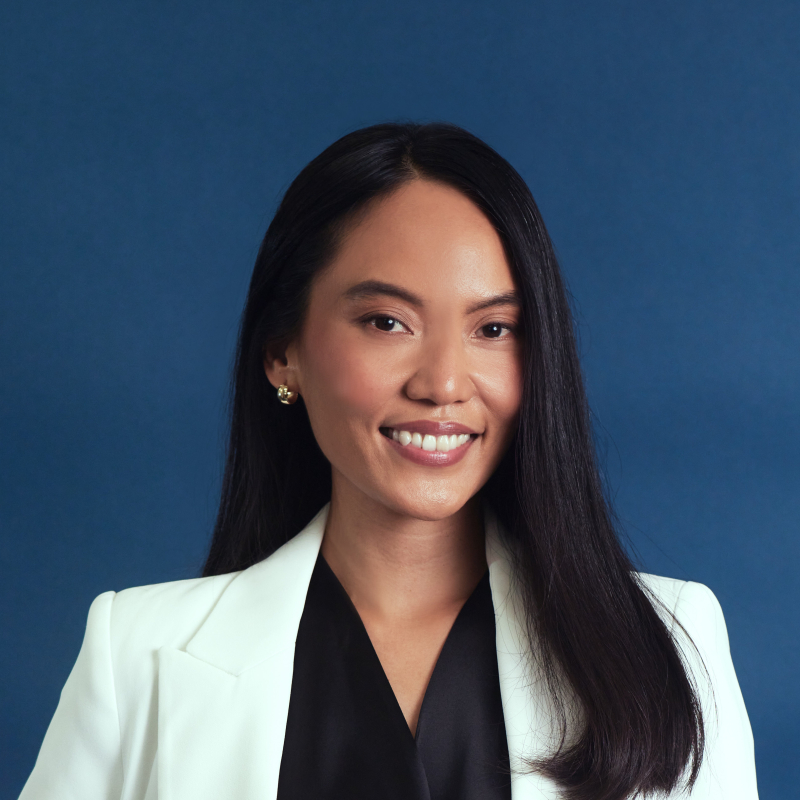
Kulika Weizman
Principal
Creative Ventures
Kulika Weizman is a principal at Creative Ventures. She leverages her operational experience as a synbio co-founder & CEO and her scientific expertise to lead investments in early-stage deep tech companies solving humanity’s most critical crises: rising healthcare costs, climate change, and labor shortages.
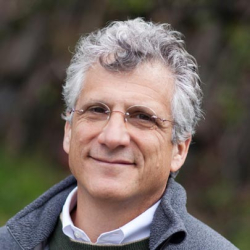
Faculty Director
Sustainable Food Initiative, UC Berkeley
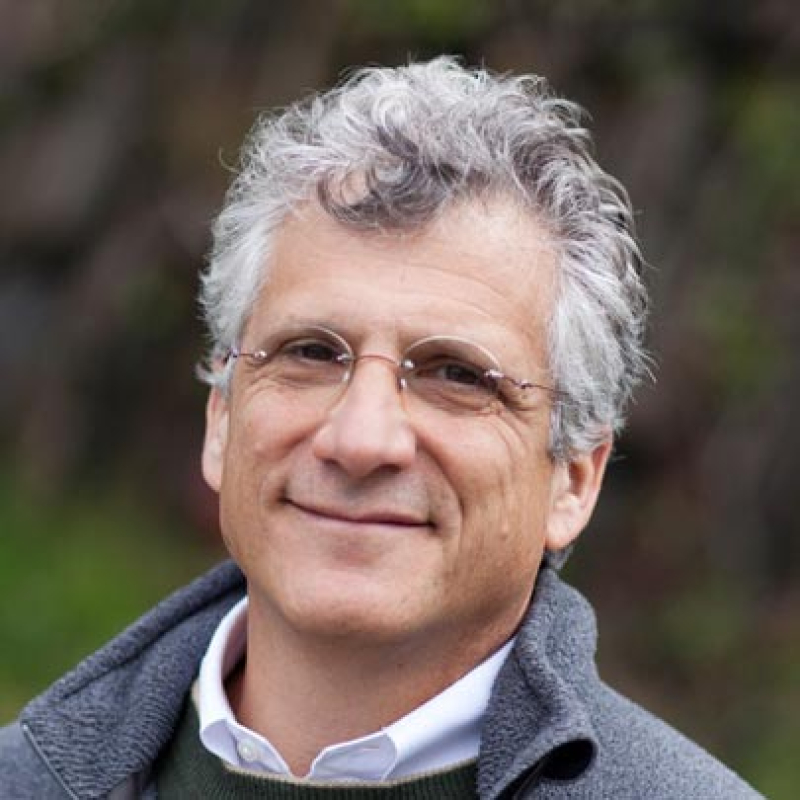
William Rosenzweig
Faculty Director
Sustainable Food Initiative, UC Berkeley
Managing Director
Ideagarden
William B. Rosenzweig is faculty director of The Sustainable Food Initiative at UC Berkeley and Managing Director of Ideagarden.
Will has spent his career as an entrepreneur, educator and venture investor. Will was founding CEO of The Republic of Tea, the company that started a tea revolution and created the premium tea category in the United States. The Republic of Tea celebrated its 30th anniversary in 2020. Will co-authored The Republic of Tea: How an Idea Becomes a Business (Doubleday 1992, 1994), which has been named one of the 100 Best Business Books of all time.
In 2010, Will was honored with the Oslo Business for Peace Award. The award was presented by three Nobel Laureates and is considered the highest international prize for ethical business leadership. In 2014, he chaired a US national commission on health promotion and the prevention of chronic disease. In 2016, Will was recognized as one of the 7 shapers of the future of food by Bon Appetit magazine.
In other entrepreneurial endeavors, Will served as Vice President of Nakamichi, Sr. Vice President at Odwalla, CEO of Hambrecht Vineyards and Wineries, Co-Founder and Chairman of Winetasting.com, and CEO of Brand New Brands, a healthy food incubator established in 2004.
Will co-founded and continues to serve as Managing Partner of Physic Ventures, the first venture capital firm focused on investing in keeping people healthy by supporting early-stage companies in consumer-driven health and sustainable living. Physic Ventures has been a lead investor in GoodGuide, Revolution Foods, Novomer, EnergyHub, T2 Biosystems, Gazelle, Pharmaca and Yummly.
A long-time faculty member at the Haas School of Business, Will developed the country’s first MBA courses in Social Entrepreneurship and Social Venture Development. Will was a member of the first impact investment fund in the country, ProVenEx, sponsored by the Rockefeller Foundation, where he co-authored some of the seminal papers on Social Impact Assessment.
Will is also a Social Impact Fellow at the Institute for Business and Social Impact (IBSI) at UC Berkeley. Will currently leads the Plant Futures, Systems Change for a Small Planet and Edible Education 101 courses (with Alice Waters) at BerkeleyHaas and is the faculty steward for the Plant Futures Symposium and Challenge Lab. He teaches an intensive course in entrepreneurship for organic farmers in collaboration with Stone Barns Center and leads The Business of Food Workshop in collaboration with Seth Godin. Will also served as the founder and Dean of The Food Business School of The Culinary Institute of America. Will serves on the boards of Civil Eats, The Teaching Kitchen Collaborative, Up-Start Co-Lab and DiasporaCo.
Will serves on the boards of Civil Eats, The Teaching Kitchen Collaborative, Enso Village and Wholesome Crave.
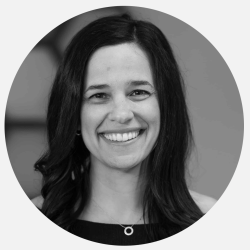
Partner
Bee Partners
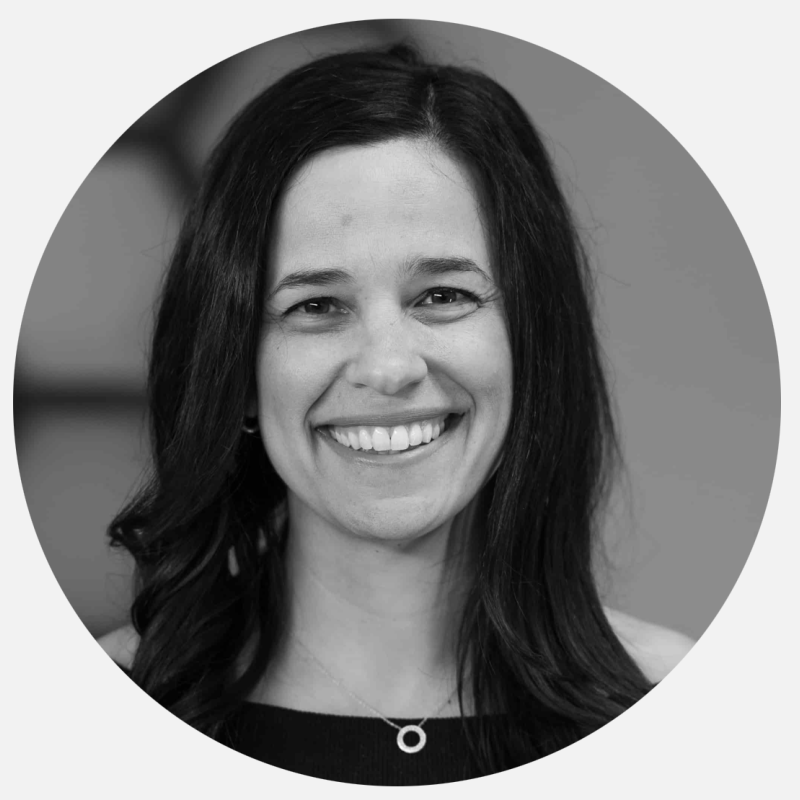
Kira Noodleman
Partner
Bee Partners
Kira Noodleman is a Partner at Bee Partners. She has spent the past six years investing and growing startups with a focus on go-to-market and minimum-viable product as a product manager in San Francisco and South America. Kira holds an undergraduate degree from Vanderbilt University and an MBA from UC Berkeley’s Haas School of Business.
Growing up in Silicon Valley, she was captivated by startup innovation, which has translated to focusing on Founders solving the unsolvable. For her, business is all about people. She co-organizes various female VC Communities such as Femme VC in Colorado and FemaleFunders in San Francisco. She’s active in her vision for Bee Partners to continue to provide the rails for building the most impactful empires at the center of human and machine convergence, fully acknowledging the responsibility and trust building required to do so.
Kira fine-tuned her ability to be nimble, adaptable, curious, and creative for contributing to sourcing top deal flow and founded Bee Partners’ Denver office by pursuing the often overlooked burgeoning non-coastal innovation ecosystems. This move also reinforced the growing acceptance of remote/hybrid workforce which enables and integrates the vast global tech community.

Lead Scientist
Good Food Institute
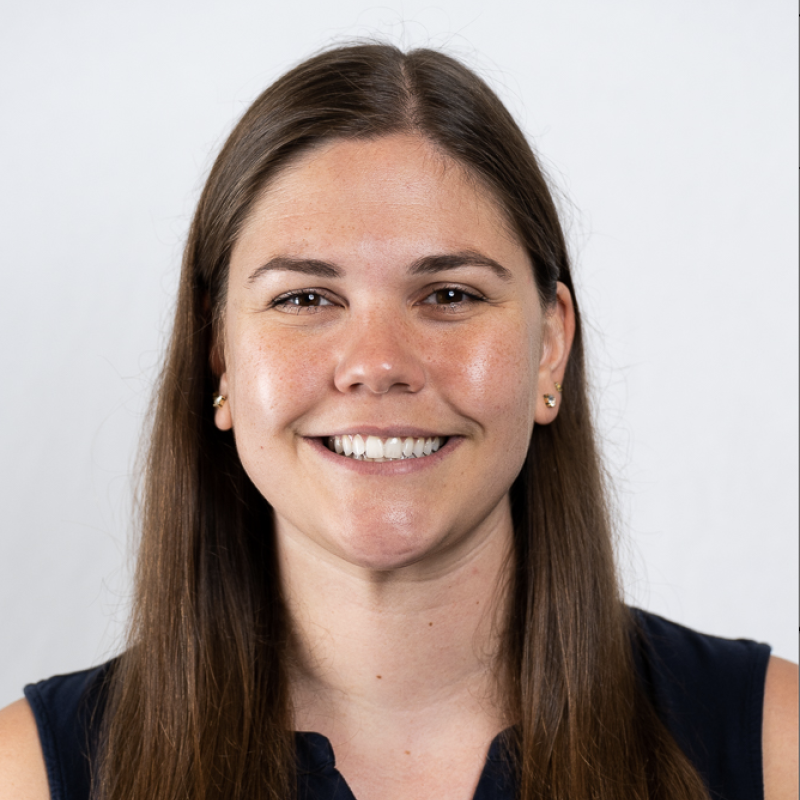
Priera Panescu
Lead Scientist
Good Food Institute
Priera Panescu is focused on analyzing plant-based meat and proteins and how to best expedite their progress. Priera’s role at GFI focuses on accelerating the plant-based meat industry through analyzing their plant-based protein landscape, identifying emerging technological solutions and bottlenecks, and communicating with other scientists about advancing alternative protein research. Priera has bachelor’s degrees in chemistry and math from the University of California, Santa Cruz as well as a master’s and a doctorate in organic chemistry from the University of California, Los Angeles. Prior to joining GFI, Priera spent almost a decade focusing on polymer, formulation, and materials chemistry research. Particularly, she honed these skills for food security applications by creating novel sustainable agriculture materials and compounds.
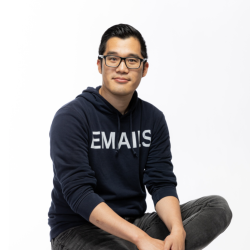
Partner
Fifty Years
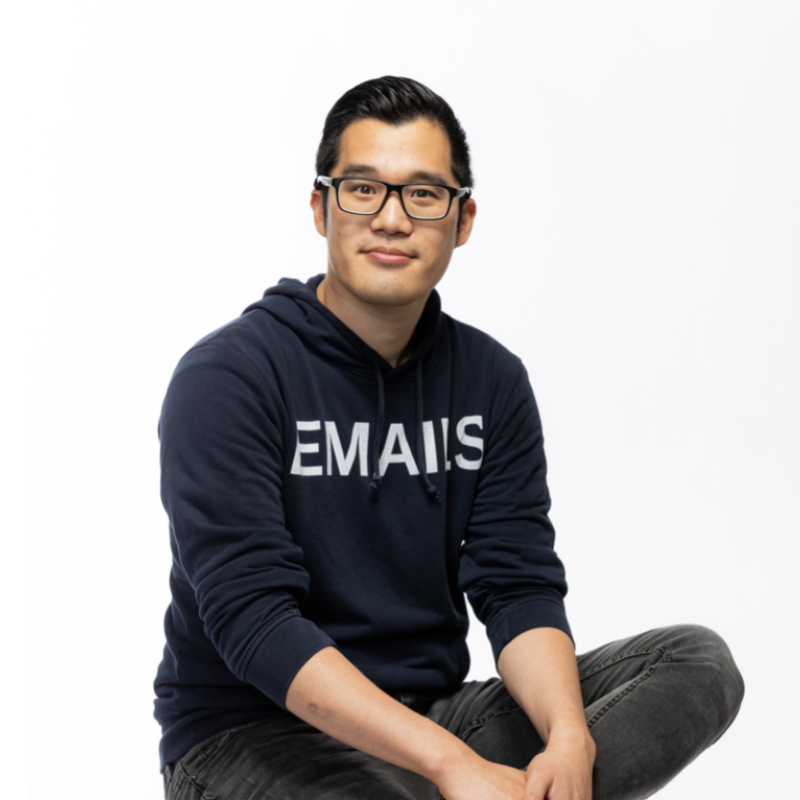
Alex Teng
Partner
Fifty Years
Alex Teng is a Partner at Fifty Years.
Previously, he worked at startup Divergent Technologies, where he helped develop a new manufacturing system for vehicle structures leveraging metal 3d printing, structural software design, automated assembly, and new materials. While there, he also helped build and develop hypercars that burned renewable methanol. He has experience with manufacturing, supply chain, logistics, and operations.
Alex has a Caltech PhD in Environmental Science -- essentially a combination of chemistry, microbiology, and atmospheric physics. For his research, he chased hurricanes, agricultural fires, and air pollution aboard NASA’s DC-8 flying laboratory. While at Caltech, he also had a lot of fun researching termite gut microbiota and developing coffee roasting and extraction protocols. With friends, Alex also founded and ultimately wound down a startup at Caltech to commercialize causality algorithms.
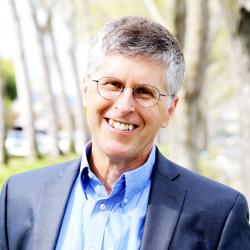
Founder
Impossible Foods
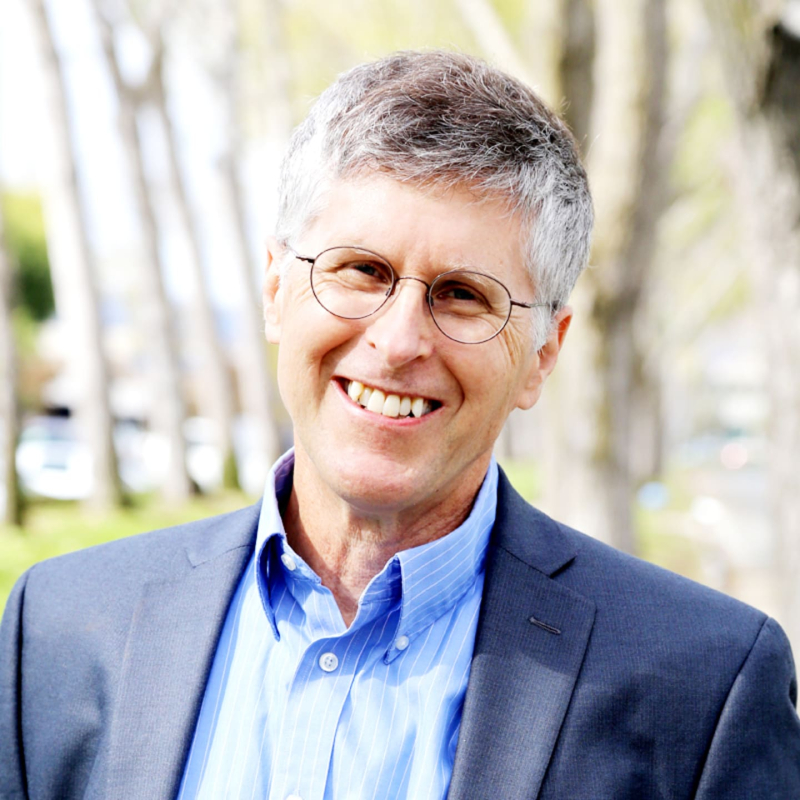
Pat Brown
Founder
Impossible Foods
Profile in progress...
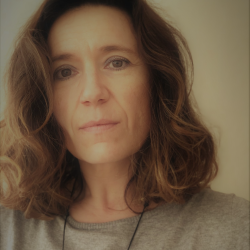
Food & Beverage Application Director
Louis Dreyfus Company
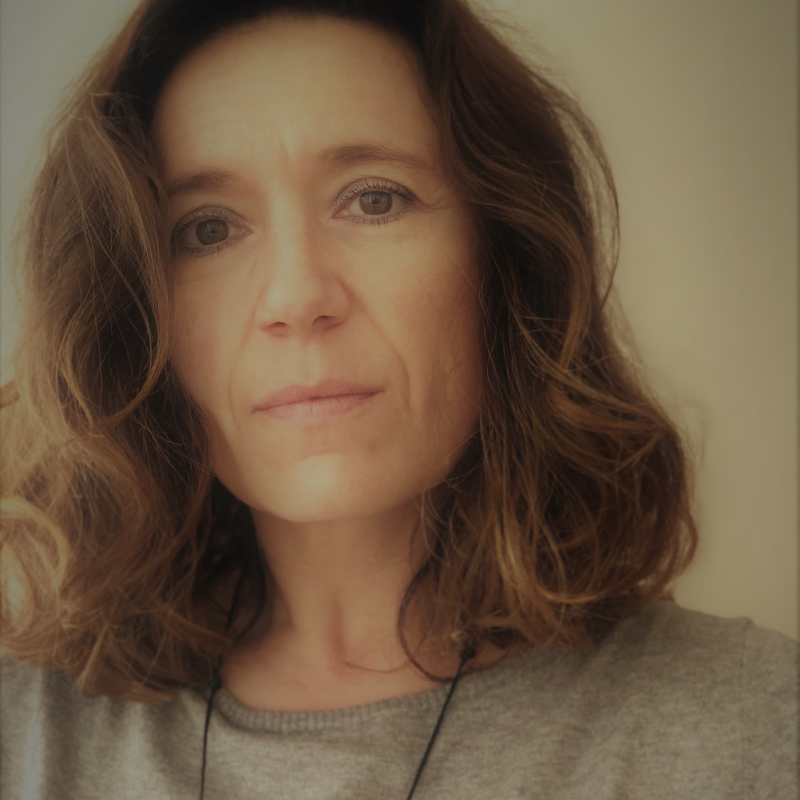
Koraljka Rade Kukic
Food & Beverage Application Director
Louis Dreyfus Company
Kora received her M.Sc. in Biology and Chemistry from the University of Zagreb in Croatia. In 2001 she joined the Protein Team at Nestlé’s Research Center in Lausanne, Switzerland. There, in collaboration with the University of Potsdam in Germany, she completed her Doctoral Thesis on Whey Protein Chemistry and Functionality. Since 2009, Kora has been working almost exclusively with plant proteins and their nutritional and functional applicability in a wide range of food products. Since 2016 she has been based in the San Francisco Bay Area where, in addition to continuous contribution to internal plant protein related developments, she scouted for external innovation and collaboration opportunities in the alternative protein space.
In 2021 Kora joined Louis Dreyfus Company (LDC), a global merchant and processor of agricultural goods, as the Food and Beverage Application Director of their newly formed Plant Protein business unit. She has been a key driver in setting up LDC’s first Research and Development Center, located in Livermore, California. The R&D Center was officially inaugurated in March 2022 and is dedicated to plant protein research to support LDC’s goal of bringing a range of sustainable, high-quality plant-based ingredients and product solutions to the market.
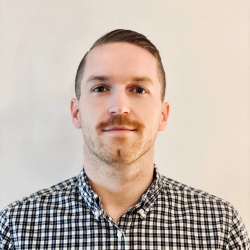
Research Scientist and Instructor
Nutritional Sciences and Toxicology, UC Berkeley
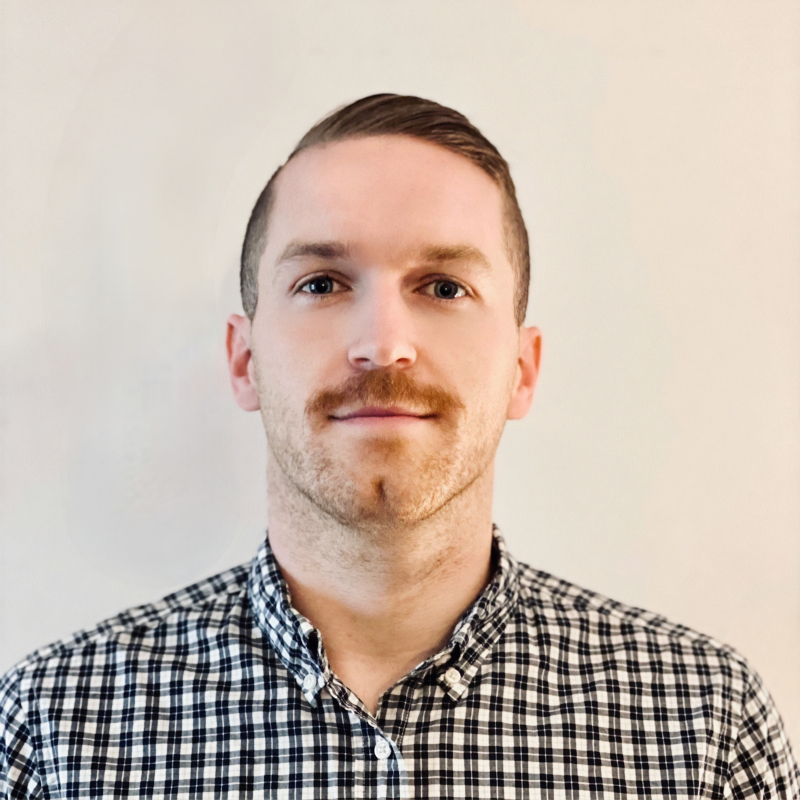
Kevin Klatt
Research Scientist and Instructor
Nutritional Sciences and Toxicology, UC Berkeley
Kevin C. Klatt, PhD, RD is an assistant research scientist and instructor in the Department of Nutrition Sciences and Toxicology. Kevin received his PhD in Molecular Nutrition from Cornell University and completed his dietetic internship at the National Institutes of Health Clinical Center. He completed postdoctoral training at the Children's Nutrition Research Center at the Baylor College of Medicine prior to joining UC Berkeley. Dr Klatt’s research aims to better characterize nutrient metabolism, signaling and requirements using in vitro and animal model systems, as well as human intervention and controlled feeding trials. Dr Klatt has published various articles across high impact journals in science and nutrition that demonstrate his excellence in primary research and meta-science related to establishing nutrient reference values, as well as numerous reviews and textbook chapters. Dr Klatt is an Associate Editor at the American Journal of Clinical Nutrition.
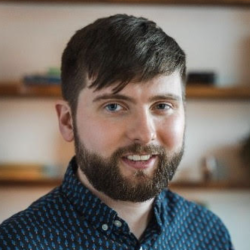
Co-Founder and CTO
Prime Roots
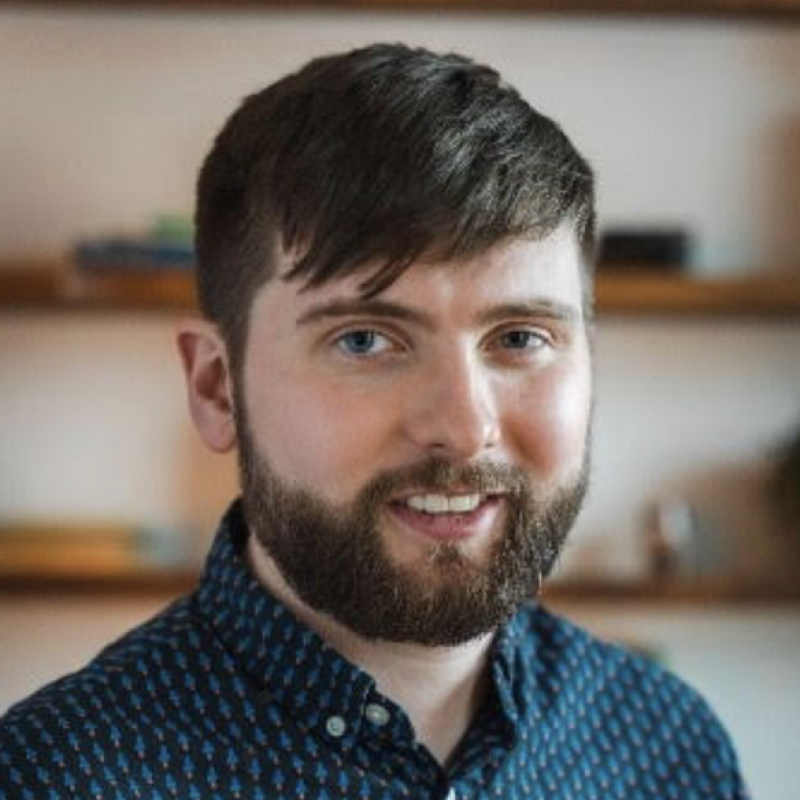
Joshua Nixon
Co-Founder and CTO
Prime Roots
Joshua Nixon is the co-founder and CTO of Prime Roots. As the son of two high school science teachers in upstate New York, Josh developed his love for science, technology, and competitive ski cross at an early age. At 17 years old, Josh walked away from his Eagle Scout Capstone project and chose instead to author a patent for Cooling Computer Processors.
Every winter, Josh noticed that his frequented snowpacks were being eroded by climate change and was determined to pursue environmental impact through his studies in Synthetic Biology and Computer Science at UC Berkeley.
At Prime Roots, Josh a devout sandwich lover oversees the science and technology behind the sliceable deli meats and charcuterie, foie gras, pâtés, and bacon supporting their mission of satisfying meat cravings in a sustainable way with plant-based deli meat that is clean, wholesome, and a cut above the rest.
Both Josh and his co-founder Kim were recognized for their groundbreaking work in sustainable food including Forbes ‘30 under 30’ honorees, and Food and Wine Magazine’s ‘Game Changer Idea Award and Fast Company ‘World Changing Ideas Award.

Founder
Uncracked
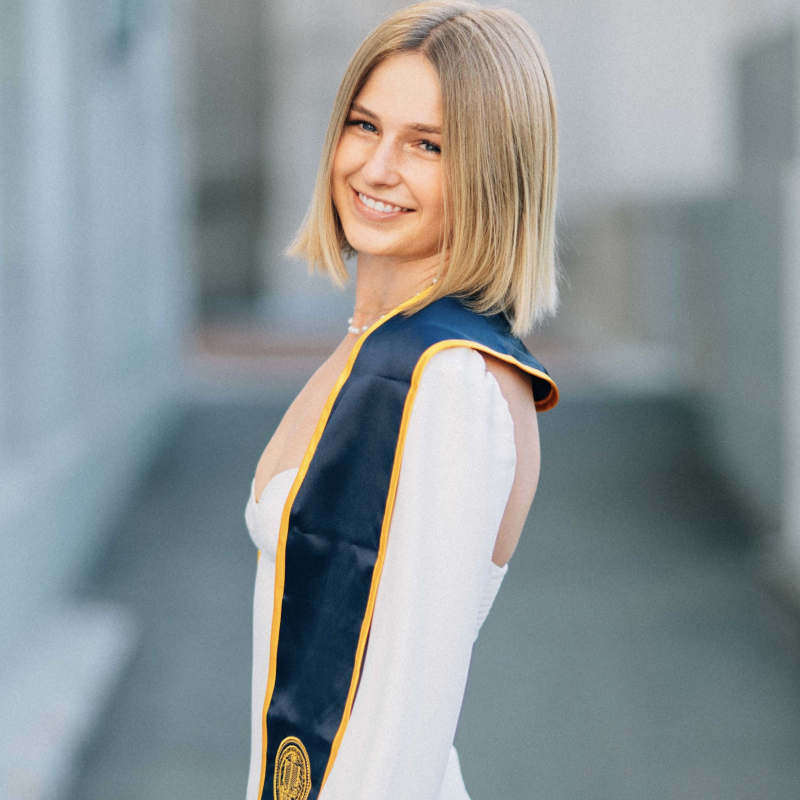
Kate Sullivan
Founder
Uncracked
Nutrition Intern
HelloFresh
My name is Kate Sullivan, I am from Long Beach CA, and I am the founder and CEO of Uncracked. I recently graduated from UC Berkeley College of Natural Resources with a Bachelor of Science in Nutritional Sciences. In addition, I received a certificate in Entrepreneurship and Technology from the Sutdarja Center. Throughout my last semester at Berkeley, I worked with a team in the course Product Design of Plant Based Food Products to develop a 100% plant-based alternative to crab meat. Not only were we successful in creating our Uncracked prototype, but we also came out first place in the Collider Cup 2023! I am continuing to pursue Uncracked and currently in the very early stages of creating the company. I am very excited for the Uncracked journey ahead!
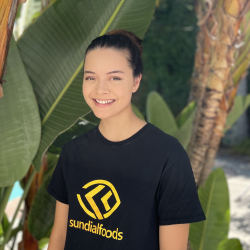
CEO and Co-founder
Sundial Foods
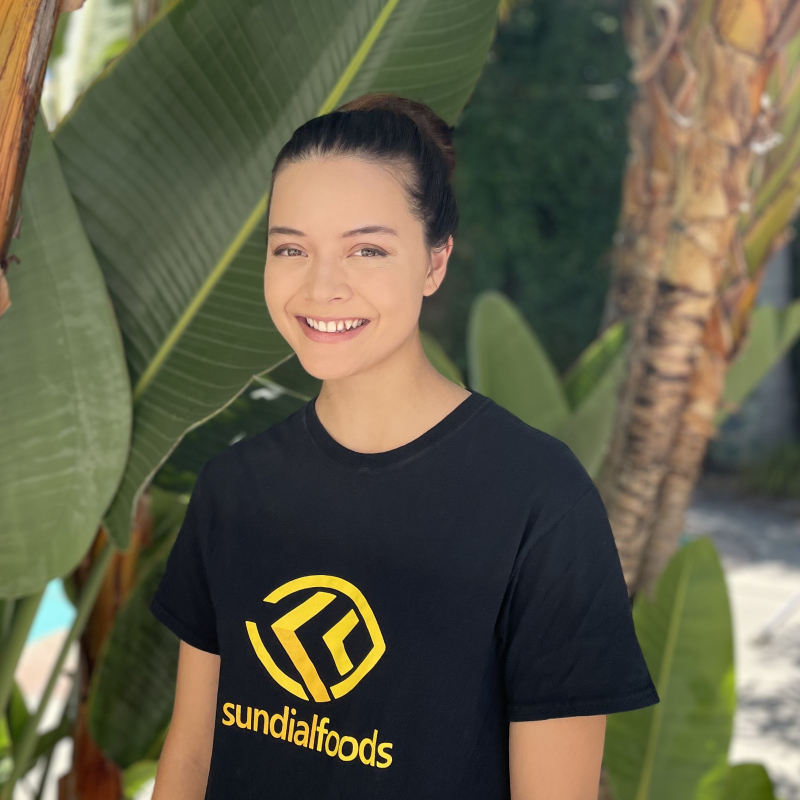
Jessica Schwabach
CEO and Co-founder
Sundial Foods
Jessica Schwabach ('21) is the CEO and cofounder of Sundial Foods. She studied molecular and cell biology at UC Berkeley. As an undergraduate, she was involved in genomics and virology research, and prior to that she was involved in the fashion industry. She began working in the alternative proteins space in 2019 through UC Berkeley's Alt Meat Program, where she met her future cofounder, Siwen Deng (PhD '19), and together they co-founded Sundial in late 2019.
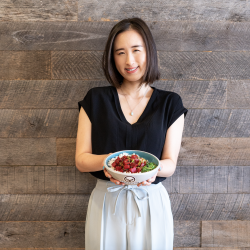
CEO and Co-founder
Impact Food
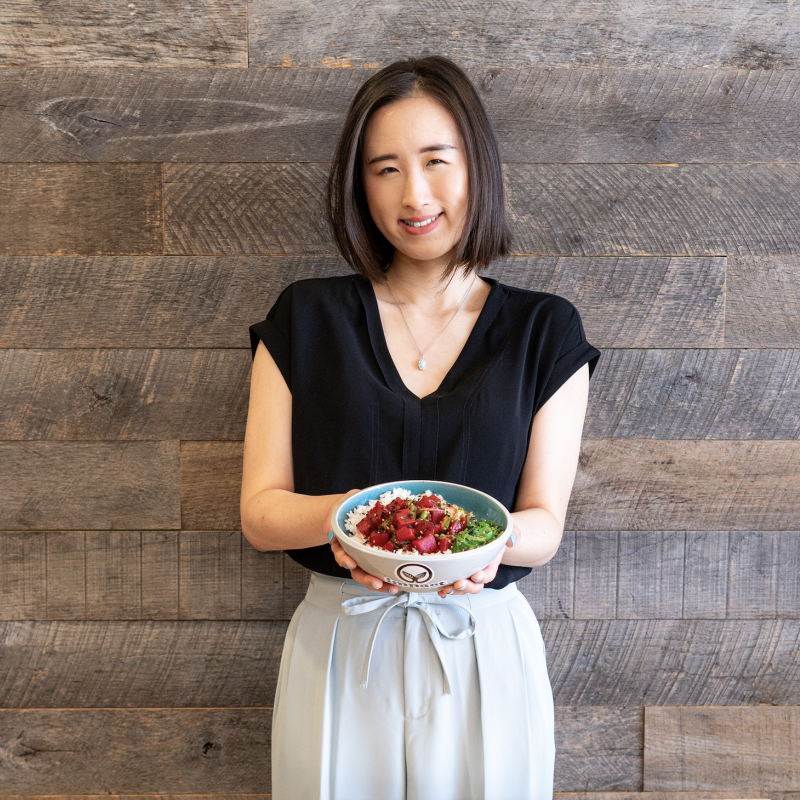
Kelly Pan
CEO and Co-founder
Impact Food
Kelly Pan is the CEO & Co-Founder of Impact Food. She is a foodie turned entrepreneur on a mission to build a more sustainable and resilient food system. Prior to Impact, Kelly led multiple interdisciplinary teams and launched impact-driven projects, including a skincare brand and a pro-bono consulting organization for small businesses. While studying Business Administration at UC Berkeley Haas, Kelly became involved in the food tech space through Dr. Ricardo San Martin’s Alt Meats program. She met her Co-Founders, Adrian Miranda (Molecular Cell Biology) and Stephanie (EECS M.S.) and they combined their fields of expertise to embark on a journey to transform the way we eat. Through Impact Food, Kelly envisions a future of food that can reliably feed a growing global population while keeping fish in the oceans. She and her team are leveraging plants and biotechnology to create the most delicious and nutritious whole muscle seafood alternatives. She is excited to bring tasty and accessible Impact Food to the masses.

CEO & Co-founder
Berkeley Yeast
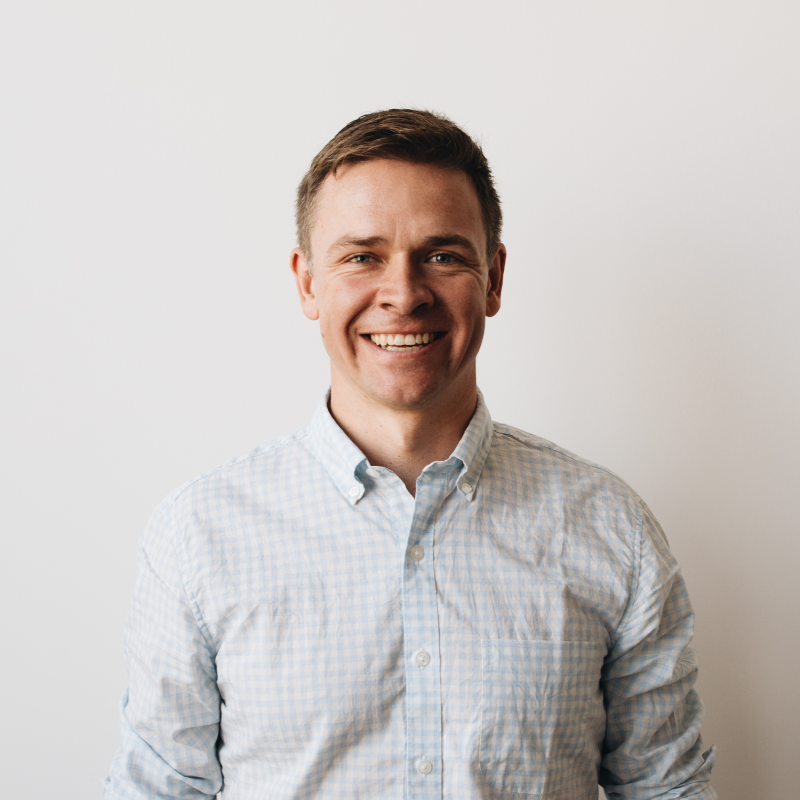
Charles Denby
CEO & Co-founder
Berkeley Yeast
Charles Denby is a scientist turned entrepreneur. Working under UC Berkeley professor and metabolic engineering pioneer Dr. Jay Keasling, Charles’s early scientific career involved bioengineering yeast to produce next-gen biofuels (i.e., clean diesel). His career path, however, would be redrawn by a hobby. While exploring home brewing as a way to engage his passion for beer, Charles saw how the same technology he was using to make biofuels in the lab could be applied to the production of beer and wine, making them more consistent, efficient, and less reliant on resource-intensive agricultural products such as hops and fruit. In 2017, he founded Berkeley Yeast to commercialize this technology and its transformative benefits. Today the company sells bioengineered yeast with extraordinary capabilities to hundreds of breweries and wineries across the country.

Principal
Agronomics

Laura Turner
Principal
Agronomics
Laura Turner joined the Agronomics team in July 2019. She holds a M.Chem Chemistry degree from the University of Oxford, and spent time during her fourth year masters project working in the Chemical Biology department at UC Berkeley, California, focused on the genetic modification of aldolase enzymes. This technology is identical to the precision fermentation tools utilised by companies within the field of cellular agriculture to produce valuable animal proteins via the genetic engineering of microbes. Laura conducts sector research, assists in due diligence of prospective companies and monitors deal flow amongst many other things.


